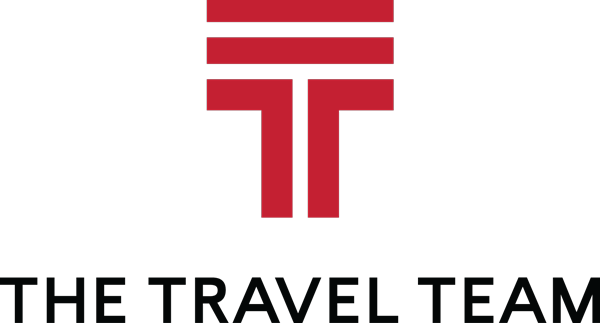
- Meetings & Incentives
- Online Booking Support
- Core Values
- TRAVEL JOURNAL
- Exclusive Offers
- Talk to an Agent
- Contact An Expert: 1-800-245-8326
- Traveler Login
The Travel Team. All rights reserved.

6 Types of Business Travel
While Zoom and other online technologies are easily accessible and make great tools for virtual communication, business travel is still pivotal. Companies that realize the important purpose of business travel reap the many benefits that it brings. According to Oxford Economics , the sales return on each dollar invested in business travel was between $10 and $14.99. Each of these types of business travel offers its own benefits and can be made even more cost-effective with managed travel .
Why travel for business?
There are plenty of reasons for business travel, but putting a face to a name is chief among them. Simply put, nothing closes a deal, develops a relationship, or cements a partnership like a handshake. The benefits to face to face interaction extend to all types of business travel and help to meet a variety of business objectives.
1. Exhibitions and Trade Shows
A great way to promote your product and expose it to new people, whether it’s food or a college education, is to attend an exhibition or trade fair in a different region, or maybe even a foreign country. You’ll also be able to look at your competitors’ products and services, as well as network with those in your industry.
Exhibitions can be big-budget events where innovative companies unveil cutting-edge products. The primary benefit of business travel–conducting business face-to-face–extends to exhibitions and trade shows where a person can ask questions and vendor relationships can be established. Moreover, the small investment of sending a handful of employees to trade shows can pay big dividends, especially in industries where it’s important to identify trends early, like in tech, healthcare, or finance.
2. Conferences and Meetings
If a meeting or conference related to your business or industry could be worthwhile for growth or networking opportunities, think about going the distance.
As travel ramps up to its pre-pandemic levels, the annual industry conference or company meeting will resume for many. For businesses with multiple branches or regional offices, an annual meeting might be the only opportunity for a company’s employees to meet in person. For remote employees that only interact with colleagues and supervisors virtually, a centrally-located annual meeting is a perfect opportunity to inspire a deeper connection among coworkers.
3. Corporate Events
Corporate events take many different forms and functions, including meet and greets, business to business meetings, and employee-only gatherings. Corporate events often present networking and marketing opportunities, as well as the chance to meet peers face-to-face while engaging in instructional training.
4. Incentive Travel
Incentive travel is funded by an employer to motivate employees, usually to achieve a goal. A corporate-sponsored trip to an enticing destination not only offers a fantastic reward but also inspires company loyalty. In turn, the employee is given encouragement, a break from workplace stress, and an awesome reward!
ROI for travel programs can grow over time as you develop relationships with hotels and other vendors. You can also expect to spend less on employee recruitment and turnover as travel programs help retain your highest-performing employees. Plus, planning an incentive travel program is easier than you think .
5. Team Building Activities
For team building activities to provide maximum benefits, they need to be exciting and engaging. Employees simply aren’t going to make the extra effort to connect in a way that is valuable to your business unless you go the extra mile. Make team building a truly exciting event by adding travel to the equation.
Popular team-building destinations are more affordable than you might guess—especially when taking advantage of the group rates being a business customer can grant you.
The cities of Las Vegas , San Diego and Nashville have all become epicenters for corporate team-building getaways. Travel advisors can plan a team-building trip with long-lasting benefits by linking your company with high-impact team-building and off-hours activities sure to please just about any employee.
6. Bleisure Travel
Bleisure travel, a growing trend, is time added to a business trip for leisure. It’s the perfect opportunity for business travelers to stick around in a new location and explore what it has to offer without all of the travel costs of a vacation.
Business leaders may wonder why bleisure travel is included on a list of types of business travel. The truth is, businesses have a role to play–and benefits to enjoy–when it comes to their employee’s pursuit of personal travel. By coordinating with an employer to add extra days to a business trip, either by taking time off or working remotely, employees are likely to be more focused during the business portion of their trip. Without having to cram in sightseeing after a long work day or over their lunch hour, they can focus on the task at hand!
Want to Learn More?
Contact our dedicated corporate travel experts by filling out the form below or calling 1-877-357-4471.

© 2024 The Travel Team | Privacy Center
When you visit any web site, it may store or retrieve information on your browser, mostly in the form of cookies. Control your personal Cookie Services here.
- wordpress_test_cookie
- wordpress_logged_in_
- wordpress_sec
- Search Search Please fill out this field.
- Corporate Finance
Corporate Business Travel: Everything You Need to Know
:max_bytes(150000):strip_icc():format(webp)/Headshot-4c571aa3d8044192bcbd7647dd137cf1.jpg)
Katie Miller is a consumer financial services expert. She worked for almost two decades as an executive, leading multi-billion dollar mortgage, credit card, and savings portfolios with operations worldwide and a unique focus on the consumer. Her mortgage expertise was honed post-2008 crisis as she implemented the significant changes resulting from Dodd-Frank required regulations.
Corporate business travel involves the movement of individuals representing their organizations for work-related reasons. Whether it’s attending client meetings, industry conferences, or sealing business deals, this practice covers a range of activities essential for professional growth.
In the interconnected global business environment, where face-to-face connections matter, corporate business travel plays a central role in sustaining and expanding enterprises across borders. Businesses face challenges in optimizing this crucial element of their operations. Strategic considerations must be taken into account to use this element of business to its greatest potential.
Key Takeaways
- Corporate business travel can unlock new opportunities for business growth, offering the possibility of reaching new markets, connecting with a wider pool of prospects, or developing brand presence and reputation.
- Traveling for business has many benefits for individuals as well, providing them the chance to meet fellow employees, grow their career by participating in different opportunities, and network within the industry, not to mention experience new destinations.
- Business traveler safety and security are top priorities during corporate travel.
- To ensure that travel goes smoothly and stays within budget, companies should implement corporate travel policies and best practices for employees traveling on behalf of the company.
Importance of Corporate Business Travel
There are many business-related reasons to travel. It can encourage team building, promote learning, offer different perspectives, provide connection to a wider network, open up new markets, and drive sales. And whether or not the trip is for a specific purpose (such as a conference or a retreat), the benefits for employees and companies alike can extend beyond the stated intent of the trip, building confidence, cultural competency, relationships, and company reputation.
Many employees consider the opportunity to travel for work a desirable job perk, as it can offer the chance to venture somewhere that they may not ordinarily go, or to have a trip paid for by their company. And although expenses are associated with travel from a corporate perspective, they may be well worth the return on investment in terms of potential leads or sales—plus, many travel expenses are tax- deductible .
Types of Corporate Business Travel
Corporate travel can take many forms, including the chance for employees and executives to attend events, such as meetings, conferences, industry networking sessions, and fairs. Or a trip may take advantage of educational opportunities such as training sessions, seminars, and workshops. Retreats and guided trips can make for valuable team-building time in new contexts that unlock different perspectives and strengthen working relationships.
Businesses may send their employees to a different location to network, sell, teach, learn from, or generally connect with external contacts or internal employees in regional offices, or to act on behalf of the company in some way.
Additionally, from a client perspective, business travel may occur as a form of due diligence , ensuring that your vendors or suppliers are legitimate, legal, and compliant organizations—for example, traveling for regular audits to confirm that what you think is happening at your supplier organizations is actually happening.
Creating a Corporate Travel Policy
From a company perspective, travel can be a challenge to administer and manage . Costs can easily balloon out of control; travel logistics can be time-intensive to arrange; employees traveling on behalf of the company must be granted a great deal of trust; and like any form of travel, business travel can open up risks to safety, security, and health.
No matter the size of the business or the frequency or complexity of travel, a corporate travel policy can be a helpful tool for any company to set expectations for its employees, communicate guidelines and processes, keep expenses within budget, and streamline booking and logistics.
In creating a corporate travel policy, companies might consider the following for both domestic and international travel, as applicable:
- Purpose(s) of travel
- Which employees are eligible to travel
- Booking and expense approval processes
- Risks and liabilities of travel and how to manage them
- Expectations for employee behavior, including acceptable and secure uses of technology, personal vs. leisure time, communication, and entertainment while traveling
- Eligible expenses for employees while traveling, including per diem rates if applicable
- Determine if employees will be reimbursed for their expenses or given a corporate credit card to use
- Financial tracking, record-keeping, and reimbursement processes
- Acceptable booking practices and costs, including preferred agents or vendors
- Travel insurance
Of course, policies must also be communicated and enforced to ensure compliance and fairness. Including a travel policy as part of a corporate handbook or reviewing it in an onboarding or training module can be a good way to ensure that all employees receive and understand the information. Making it easily accessible for future reference on a shared drive or company portal will encourage employees to refer to it often.
Business travel managers estimate, on average, that spending on domestic and international corporate travel is at 77% and 74%, respectively, of where it was before the COVID-19 pandemic.
Setting a Corporate Travel Policy
:max_bytes(150000):strip_icc():format(webp)/GettyImages-14013409352-16063b976ed14512837ca0fe8bdc536d.jpg)
Corporate Business Travel Best Practices
There are many best practices that both employees and companies can keep in mind around corporate business travel to ensure that it is a successful experience. These encompass everything from administration and financing to employee behavior and well-being.
Booking Corporate Travel
Booking travel can be labor-intensive and time-consuming. To improve the booking process, save on costs, and streamline expense reporting, it can be helpful to designate preferred travel agencies, online platforms, vendors, and lodgings for employees and executives to book with. If the size of the company allows, it can also be helpful to hire an employee or team specifically to oversee and administer corporate travel, or designate this duty as part of an employee’s broader job description.
Managing Travel Expenses and Budgeting
There are many financial considerations when it comes to corporate business travel, and expenses and budgets must be carefully managed to keep costs under control. Many travel expenses are tax-deductible and can be written off, representing potentially significant savings for a company. Setting a budget and clear guidelines for employees about what can be an expense and what cannot is a must, as is creating and enforcing policies and procedures around tracking and reporting expenses.
Many corporate credit cards offer travel rewards and cost-saving opportunities for business travel, as do many other vendors and suppliers in the corporate travel industry. Businesses can take advantage of these to reduce inefficiencies and save on costs.
How to Manage Corporate Travel
:max_bytes(150000):strip_icc():format(webp)/GettyImages-1447025063-e5cd8140937b4bddb5a1c103997e498e.jpg)
Ensuring Traveler Safety and Security
As with any trip, business trips are not without safety and security risks, including the potential for political or civil unrest, crime, illness, injury, accidents, emergencies, natural disasters, cybersecurity breaches, or theft.
To protect their employees against unexpected and undesirable circumstances, at a minimum, businesses will want to have a travel insurance plan in place. It’s also helpful for businesses and employees to undertake some form of travel risk assessment to aid them in navigating potential risks, and outline safety and emergency preparedness guidelines within a corporate travel policy.
Employees should also know how to call if something goes sideways, such as hotel booking issues. A travel agent? A supervisor? If there’s a hurricane, you don’t have a car, and your flight is canceled, can you book another last-minute flight to get around the weather to get home? These details should be planned ahead for.
Maximizing Productivity During Business Trips
The overlap of business and leisure, sometimes referred to as “bleisure,” is one of the main draws of corporate business travel. However, there can also be pitfalls associated with this gray area. It can be difficult to stay productive while working remotely, whether due to the many distractions of a new environment (positive and negative), or because the trip entails an increased workload or time spent away from day-to-day job duties.
Employees looking to manage their time efficiently while away should get clarity on the intended purpose and expected outcome of their trip, and their employer’s and teammates’ expectations for their workload and communication frequency. They can also plan ahead to make the most of their travel time and downtime, and anticipate time zone differences to ensure smooth communication and adjustment to jet lag.
It’s important for employees to maintain work-life balance while traveling on behalf of work. Researching food, entertainment, and fitness options and preparing accordingly can pay off in terms of mental and physical wellness, especially for frequent travelers.
Tips for Business Travel Etiquette
Traveling anywhere, whether domestically or internationally, comes with responsibilities and expectations regarding employee behavior. Perception is one of the most important factors to remember when traveling as a representative of your company. You represent your company out in the public, so you need to ensure you’re displaying any key values that your company represents when interacting with vendors, clients, and peers.
This applies to cultural sensitivity as well. Travelers should do research in advance of their trip to ensure that they can be mindful of local customs and professional etiquette and behave with awareness and respect. Even the basics, such as learning appropriate forms of greeting or how to handle money and payment, and committing a few common words or phrases to memory can go a long way toward demonstrating good intentions and building a new relationship across cultures.
Sustainable and Responsible Business Travel
Recognizing that corporate travel can have a negative impact on the environment, many businesses and individuals are reexamining their travel practices and policies to see where they can make improvements. One example is reducing emissions by booking different means of transportation when possible. In general, seeking out vendors or companies that promote sustainable travel practices and responsible tourism, and that support local communities and ecosystems, can be a good first step to reduce environmental impact.
Technology and Tools for Corporate Business Travel
Software and technology tools can be immensely useful across all aspects of corporate business travel. Travel management and booking platforms; apps for tracking expenses, navigation, or converting currency; and translation and communication tools are all things that employees and businesses alike can take advantage of before, during, and after traveling.
When it comes to technology, it’s important to account for cybersecurity risks and only bring what is necessary to reduce the potential impact of damage, loss, or theft.
Managing Business Travel Expenses
:max_bytes(150000):strip_icc():format(webp)/GettyImages-652153847-592422645f9b58f4c07fcb7a.jpg)
What Is an Example of Corporate Business Travel?
There are many work-related reasons to travel, but many businesses will have their employees travel for conferences, events, sales and networking, seminars, meetings, team building, retreats, and to open up new business growth potential.
How Does Corporate Business Travel Work?
Corporate travel is simply travel for business-related purposes, so the nature of the trip will depend on its length and purpose. Companies whose employees travel frequently on behalf of the business should consider creating a corporate travel policy with information and guidelines for their employees.
Who Handles Corporate Business Travel?
Some businesses employ internal teams or individuals to manage corporate travel and business trips. At other times, employees are responsible for making their own arrangements within guidelines laid out by the company. There are also corporate travel agencies that businesses can leverage to streamline and optimize their bookings and costs.
The Bottom Line
Corporate business travel can be an invaluable path to both business growth and individual career development, building strong relationships and teams. No matter what form it takes, it’s prudent for companies to collect, implement, and communicate best practices for business travel to their employees in a company handbook or corporate travel policy. This should incorporate areas such as expense and booking management, safety and security, productivity, sustainability, technology, and employee behavior and etiquette.
Michela Buttignol / Investopedia
Internal Revenue Service. “ Understanding Business Travel Deductions .”
Global Business Travel Association. “ GBTA Business Travel Industry Outlook Poll .”
Harvard Business Review. “ How to Work and Travel at the Same Time .”
- Terms of Service
- Editorial Policy
- Privacy Policy
- Your Privacy Choices

The 7 Main Types of Business Travel
For many organisations, building relationships forms the crux of their business operations, which is why business travel is so important. Relationships are far easier to maintain through face-to-face interactions as it breeds genuineness and builds trust between business associates.
It’s important to understand what kinds of trips you can expect when you’re asked to travel for business. In this post, we’ll take a look at the different types of business travel commonly practised in the corporate world.
Why Do Different Types of Business Travel Exist?
Travelling for business is an essential part of managing distant business entities and makes clients, suppliers and other associated parties feel as though they are a key part of the organisation those travelling represent.
Companies may also emphasise specific aspects of business relationship building, the scope of which is multifaceted. Different types of business travel, therefore, apply to different business relationships, which is why an array of travel types exist.
Types of Business Travel
Different types of business travel fulfil different purposes for a company or business. Understanding the different types of business travel means that you can extrapolate optimal value from business trips you take yourself or send your team members on. Below, we’ve broken down the kinds of interactions you can expect to encounter when you travel for business.
Conferences and conventions
Travelling for conferences is a great thing to do when you’re looking to conduct market research, understand a particular client base, market your product or service, or simply network with other experts in your field.
Some of the factors you have to consider when travelling for a conference or convention are value added to the company after attendance, ticket costs, whether you’re going as a guest or as an exhibitor or speaker, how you and your employees will get there, and any accommodation requirements if any.
Before travelling for a conference or convention, you should take a look at which other organisations are planning to attend the event. This will allow you to develop a strategy to optimise how you and your team will spend time there.

Business meetings
Business meetings are an essential part of ensuring that your business continues to expand and grow positively. A business meeting does not have to only centre around clients but can also be between other business entities like suppliers, meetings with the board, and prospective investors.
You may also be required to travel to present to another business if you are giving demonstrations of a particular product or service, in which case you will be travelling for the sake of sales pitching.

Corporate events
If you have established yourself within the corporate world, then you may have to attend corporate events. This would include attending awards ceremonies, private or internal events like office parties, seminars, training sessions or product launches. Not all corporate events are open for every employee. It’s likely that you will only travel for corporate events if you are in management, client relations, or a C-level position within your organisation.

Team-building activities
If you’re part of a company that has a group of staff members, it’s vital that you ensure the morale within a team remains high. One of the best ways to do this is through team-building activities. Team-building has many benefits, including developing communication skills within the team, forming an understanding of members’ expertise and speciality areas, and enabling networking with other departments and across the employment hierarchy.

Bleisure travel
With the rise in remote working, the concept of bleisure travel is becoming more and more well-known. If someone is required to travel for business, it is now common practice to add some time onto the trip for some personal time.
The person travelling may wish to use some of their allocated leave to enjoy some of the sights and attractions located in the same place they have travelled to for a primarily business purpose. Bleisure travel integrates travelling for business and for leisure and is a great way to incorporate a holiday away from home.

Transfers and offshore work
In today’s business world, many companies have global branches and entities worldwide. For example, companies that manufacture and sell products may have their manufacturing facilities located in a different country. There may also be offices worldwide that specialise in different departments.
A work transfer may be offered if a company feels that value will be added to them if they send staff members to international locations. Transfers entail sending staff members away for extended periods to allow them to enhance their skills in other areas. With this kind of business travel, the company may be required to organise the employee’s accommodation and provide them with a live-out allowance.

Site visits
Businesses that operate within industries that own major plants often have their corporate offices located separately from these sites. For example, a major power supplier will have an office based in the city, while their power plant is located in a more rural setting.
Members of the corporate office are often required to visit these sites to gain insights into business operations and get an overview of other aspects like outputs and performance. Site visits, therefore, form an integral part of certain business interactions and require businesses to allow for travel to these sites.

Choosing Accommodation for Different Types of Business Travel
Organising accommodation for those travelling on behalf of your company is an essential part of corporate travel management. Accommodation only needs to be organised if it is impossible to return home on the same day that travel is required. You also want to ensure that your representatives attend meetings feeling refreshed and prepared, which should influence the type of accommodation you book for your staff.
For client meetings and sales pitches, booking a hotel for representatives will allow staff members to freshen up and get a good night’s sleep before a meeting. If business travel is only for a short period of time, the accommodation such as a hotel is more than sufficient. However, for more extended business travel purposes like offshore work or transfers, serviced apartments may be more appropriate. The accommodation you choose depends on the nature of business travel .
The Role of Serviced Apartments in Business Travel
Serviced apartments are the perfect accommodation solution for those travelling for business who require a bit more privacy and agency. Having a serviced apartment means business travellers will not have to worry about aspects such as cleaning, but they do have the option to do laundry, cook for themselves and relax in a more homely environment than a hotel.
For this reason, serviced apartments are often better suited to contract workers or those required to take extended trips for business.
All apartments available on TrustedStays have been pre-vetted against our high quality and safety standards. This gives business travel organisers peace of mind that the accommodation aspect of the business trips is well-taken care of. With serviced apartment options in many locations, get in touch today to see how we can help you plan corporate trips.

1000s of quality assured homes across the UK

All property partners are independently accredited by the Short Term Accommodation Association

Professionally cleaned and managed homes, meeting the STAA'S guidance on cleaning standards

A home from home experience, even when you are travelling for work
Read what interests you most:
Receive an exclusive guide when you sign up.
Simply sign up to our newsletter and be the very first to find out exclusive information for all the latest work travel and accommodation news and we’ll send you a free guide on making the most from short term rentals.
We won’t spam you. Ever.
See how Cvent can solve your biggest event challenges. Watch a 30-minute demo.

What Is Business Travel? Importance and Types

Business travel has always been an integral part of the corporate world. It provides opportunities to meet clients face-to-face, attend conferences and networking events, and explore new markets.
However, as much as business travel can be exciting, it also comes with its fair share of challenges. From flight delays and cancellations to tracking approvals and keeping spending in check, numerous obstacles can make business travel stressful and overwhelming.
In this blog, we will explore the challenges and solutions of business travel and provide insights on how businesses can optimize their policies and practices to make them more efficient, cost-effective, and enjoyable for everyone involved.
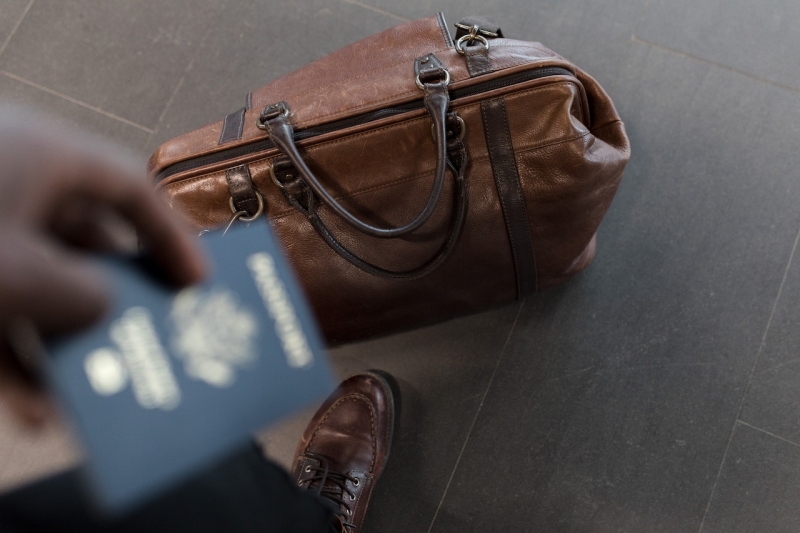
What is Business Travel?
Millions of professionals worldwide engage in business travel each year. Business travel is when you hit the road or take to the skies for work-related purposes. So, if you've ever traveled across state lines for a meeting or hopped on a plane for a conference, you've been on a business trip.
According to the Bureau of Transportation Statistics , Americans take over 400 million long-distance business trips yearly, accounting for roughly 16% of all long-distance travel.
What is the Importance of Business Travel?
It's clear that business travel is a significant part of many companies' operations, but what motivates them to send their employees on these journeys? There are several reasons why companies invest in business travel. Here are some of them:
1. Closing Deals
Business deals often involve significant negotiation, and in-person meetings can be critical to reaching an agreement. When people meet in person, they can build trust and establish personal connections that are difficult to achieve through virtual communication. As such, closing deals in person is a common reason for business travel.
2. Exploring New Markets
Companies looking to expand into new markets often send representatives to explore the conditions on the ground and conduct research. Visiting a new market can provide valuable insights into consumer behavior, local regulations, and cultural norms that can help companies tailor their products and services to a new audience.
3. Building Relationships
One of the primary advantages of business travel is its opportunity to build stronger relationships with clients, partners, and colleagues. While email, phone, and video conferencing are convenient, nothing beats face-to-face interactions regarding establishing trust and rapport.
You can pick up on nonverbal cues during in-person meetings and establish a more personal connection. It can lead to a deeper understanding of the other person's needs and goals, which can ultimately help you provide better service or products. Additionally, in-person meetings can help address any concerns or issues more quickly and efficiently, preventing them from becoming more significant problems down the line.
4. Networking
Attending industry events, trade shows, and conferences can provide networking opportunities, learning about new trends, and meeting potential clients and partners.
Networking can be invaluable for building relationships, finding new clients or partners, and staying up-to-date with industry best practices. For example, attending a trade show can provide opportunities to showcase your products or services, meet potential clients, and learn about the latest market trends.
5. Competitive Advantage
Companies prioritizing business travel and investing in face-to-face meetings with clients and partners can gain a competitive advantage over those relying solely on digital communication. By meeting with clients and partners in person, companies can establish more personal connections and build trust, leading to more business opportunities and revenue.
Here's a business travel checklist to make business travel for your employees less stressful.

Different Types of Business Travel
Business travel can take many forms, depending on the purpose of the trip and the activities involved. Here are some of the most common types of business travel:
- Event and Conference Travel: Companies often send employees to corporate events and conferences where attendees can learn and network with peers, potential clients, and service providers.
- Training and Education: Companies may send employees to conferences and workshops to learn about trends and best practices in their functional areas. These events can provide valuable opportunities for professional development and networking, helping employees stay up-to-date on the latest industry developments and build relationships with others in their field.
- Internal Meetings and Visiting Offices: National and multinational companies may need to send employees and leadership to other offices to discuss specific projects and business strategies or to build a more integrated organizational culture.
- Company Retreats: Some companies hold retreats annually or multiple times yearly to help teams grow stronger and build company culture through shared activities.
- Client Meetings: Maintaining solid relationships with existing clients is crucial for many businesses. Account managers and others may regularly visit their most prominent clients to check in on them, take them out for a meal or drink, and generally show gratitude for their business. These visits can strengthen relationships and potentially lead to additional business.
- Trade Fairs: Many organizations attend trade shows and expos to display their products and services and connect with potential clients. Attending these events can effectively generate leads and build relationships with potential customers, especially in industries where face-to-face interactions are critical.
- Transfers and Offshore Work: Long-term transfers involve relocating employees to a different city or country for a certain period, usually to work on a specific project or set up a new function or business process.
- Transient Travel: Business transient travelers typically refer to individuals who frequently travel for short periods, often for a business meeting or work-related. These travelers usually stay in hotels or temporary accommodations and frequently move between locations for work or other activities.
- Bleisure Travel: This hybrid travel style combines business and leisure travel, allowing employees to extend their business trips to leave time for sightseeing and relaxation. Bleisure travel can benefit employers and employees, encouraging employees to volunteer for business trips more often and providing a relaxing break.
Top Challenges To Manage Business Travel
As many businesses need help managing company travel, several issues affect day-to-day operations. These include:
1. Managing Large Numbers of Requests
When managing large numbers of travel requests, keeping track of all the information and ensuring that requests are processed efficiently can be challenging. It can result in delays and frustration for employees waiting for travel approvals or information.
For example, imagine a small company with just one finance person responsible for managing all travel requests. They receive requests from various team members in different formats—email, Slack messages, and in-person visits. It can lead to confusion and delays in processing the requests and distract the finance person from other essential tasks.
2. Tracking Approvals
It's a massive headache if your company's travel approvals are manually emailed. Tracking travel approvals can be time-consuming and prone to errors. It can result in missed approvals, delayed travel, and frustration for employees waiting for approval.
Imagine a team member submits a travel request, and the finance person then sends an email to the manager for approval. If the manager is busy or forgets to respond, the request may be delayed or even missed altogether, causing frustration for the employee who is scheduled to travel.
3. Keeping Spending in Check
Managing travel costs can be difficult, especially when employees book trips independently or through different channels. It can result in overspending and frustration for finance teams who aim to keep costs under control.
For example, imagine a company where employees book travel through different channels. Some employees book expensive hotels and flights, while others find cheaper options on discount travel websites. It can lead to inconsistency in travel costs and make it difficult for the finance team to manage and budget travel expenses.
4. Being Flexible
Flexible travel policies can result in consistency, especially when balancing cost control with employee satisfaction. It can result in frustration for both employees and finance teams.
For example, a business with restrictive travel policies can limit employees to specific airlines, hotels, and routes. It may help control costs, restrict employee options, and make travel less enjoyable. On the other hand, if policies are flexible, employees may book expensive options outside the budget.
5. Reducing Errors
Reducing errors in travel management can be challenging, but it is essential to ensure accurate tracking of expenses and approvals. This can help prevent delays and frustration for employees and finance teams.

How Companies Can Manage Business Travel
Companies must make the process straightforward to ensure that team members comply with travel policies. If the process is simple, team members will find ways to circumvent the rules, and compliance will improve. The following are some common pitfalls to avoid:
- Too many rules: Too many, incredibly confusing or contradictory, can be overwhelming and frustrating for team members. It can lead to non-compliance or errors.
- A high number of touches: Too many touchpoints, like requiring additional emails to managers for approval, can slow down the process and make it difficult.
- Lots of manual steps: Requiring team members to file printed documents and receipts can be time-consuming and create opportunities for errors.
- Unclear processes: If team members are unsure of the steps or rules they must follow, they may become frustrated and disengage from the process.
To ensure compliance and simplify the process, use a corporate travel management system that walks employees through each step. By automating the process and making it easy and intuitive, team members are more likely to follow the rules and comply with company policies.
What is a Business Travel Solution?
A travel management system is a software platform that helps companies manage their employees' travel-related activities and expenses. These systems can be purpose-built tools from third parties or developed in-house by large companies. However, building a travel management system from scratch doesn't make sense with the availability of corporate travel management tools out of the box for a relatively low cost.
These systems aim to oversee, regulate, and coordinate a company's employees' travel activities and expenses. Previously, a company's office administrators or a dedicated travel manager would handle these tasks. However, with a travel management system, these manual tasks can be streamlined or automated, freeing up staff for more valuable work than monitoring others' travel plans.
A business travel solution typically offers features such as online booking, expense tracking, policy compliance, travel budgeting, and reporting. They make booking, managing, and tracking business travel much simpler and more efficient for companies and their employees.
As a business, it's essential to recognize the value of investing in business travel. There are numerous reasons why companies send their employees on these trips, including closing deals, exploring new markets, holding internal meetings, prospecting, educating, and visiting existing clients. These opportunities provide valuable experiences and insights to enhance your company's operations and bottom line.
However, managing business travel can present challenges, such as managing large requests, tracking approvals, and dealing with changes in travel plans. To address these challenges, it's crucial to have a straightforward and streamlined travel policy outlining the process for requesting, approving, and booking travel and any expense and reimbursement policies.
Another essential aspect of managing business travel is providing support and resources to employees while on the road. It includes ensuring they have the necessary technology and tools to stay connected and productive, providing guidance on safety and security, and offering access to travel support services in emergencies.
By recognizing the importance of business travel and implementing strategies to manage it effectively, your company can reap the benefits of enhanced collaboration, improved relationships with clients and partners, and increased opportunities for growth and success.
So let your employees stay connected, build relationships and enjoy their next business trip!

John Hunter
John is the Senior Manager of Event Cloud Content Marketing at Cvent. He has 11 years of experience writing about the meetings and events industry. John also has extensive copywriting experience across diverse industries, including broadcast television, retail advertising, associations, higher education, and corporate PR.

More Reading
19 engaging conference themes for 2024, congratulations to the 2024 cvent excellence awards finalists, 5 reasons agency partners can't miss cvent connect.
Subscribe to our newsletter
5 types of business travel and how to arrange transport
Aug 8, 2022

Without business travel, professionals would be restricted to video calls — something we’ve all grown tired of in recent years.
While video calls have their place, getting away from the office or remote workplace is valuable for individuals and beneficial for companies. There are many types of business travel , from a working lunch with a new client to a week-long overseas conference. Explore the value of business travel and the goals it helps to achieve.
Five types of business travel
Business travel covers all trips made for work purposes. And all types of business travel have a purpose. Client meetings and sales pitches support business development, while other trips, like conferences, focus on education and networking.
Client meetings
Professionals average 25.6 meetings per week .
Such is the frequency of meetings — whether a routine client meeting or an impromptu catch-up with a supplier — arranging transport to and from these meetings is an everyday occurrence.
And getting out of the office for some of those meetings can make them more productive.
Face-to-face meetings and business lunches remain essential to building healthy, long-lasting relationships. Nothing beats putting a face to a name or closing a deal with a handshake.
Events and conferences
To develop your workforce, consider encouraging your employees to attend conferences, trade shows, and workshops.
These professional learning and development sessions are everyday activities that typically attract large numbers of employees. Indeed, 68% of workers consider learning and development the most important opportunity offered by employers.
Such demand means making additional travel considerations — namely, cost and environmental impact.
Visiting other offices
Business travel is essential for companies with multiple offices as it helps tie the entire business operation together.
Employees and management will often travel to discuss projects, performance, and strategy with other offices. Travel arrangements will vary depending on whether offices are local, national, or international.
Team-building activities
When planning a team-building event, the most important thing is travel.
It wouldn’t be much of a team-building event if only half of your team made it! There are plenty of team-building activities you can host within the office walls, but when something more adventurous comes calling, you need to find a way for everyone to get there. The activities to connect with your team are endless — from escape rooms to summer golf days.
No, that’s not a typo. Bleisure is the time added to the end of a business trip for sightseeing and relaxation.
If the business trip’s long-distance, it’s understandable that employees are eager to stay and enjoy the sights. Surveys show that 75% of business travellers extend trips for leisure purposes — and it’s a growing trend .
With professionals accustomed to remote working, remaining in travel destinations for days or weeks beyond business trips could become the new normal.

Finding the best way to travel for work
There are various forms of ground transport to suit all types of business travel .
Companies should have a travel policy that allows employees to travel for work and claim expenses. Many companies are now building sustainable travel policies to reduce their environmental impact.
But whether there’s a clear travel policy in place or not, any time an individual or team travels for work, you need to consider:
- Sustainability;
- Accessibility;
- The number of travellers.
Company cars
Many see company cars as an ideal solution for arranging business travel. But when considering the rising fuel, maintenance, and insurance costs, alternatives provide better value.
Owning a fleet may be convenient, but the outlay of providing company cars rarely makes financial sense. Plus, if you purchase a company car to share amongst employees, things can get complicated when multiple people need to use it on the same day.
Some companies try to solve the difficulties of owning a fleet by offering team members a car allowance . But this can give employers less control over the costs, and there’s no guarantee the fuel will be used for business travel.
Public transport
Public transportation is an environmentally-friendly travel option. And it can work out cheaper than owning a fleet of company cars.
The carbon emissions and price perks are appealing, but if you’re looking for a reliable, stress-free service, you’ll want to keep scrolling.
You have to adjust your plans to suit timetables rather than having the flexibility to travel any time. Factor in the time spent plotting routes, navigating a stressful rush hour, and potentially unreliable services, and it’s easy to see why many opt for different transport methods.
You can use the time in the backseat of a taxi to work on important tasks or prepare for the meeting ahead. The journey promises to be relaxing and stress-free, but the before and after can be troublesome.
Hailing a taxi or phoning a firm to organise a pick-up is frustrating, especially in a remote and unfamiliar area. And at the end of your journey, you can get stung with an eye-watering bill if you use the wrong firm.
Then employees have to foot the bill until the travel expense claim is processed.
Bolt Business
You can get all the benefits of various transport methods in one complete package with Bolt Business .
Through the Bolt Business dashboard , admins can:
- Add and remove employees;
- Set travel rules and spending limits;
- Book rides for employees and clients with Ride Booker .
Once added, employees can arrange ground travel using their Bolt app:
- Getting a ride to the airport;
- Commuting on an electric scooter;
- Arriving in a premium car for important sales meetings.
And on top of that, Bolt Business is the sustainable option for your team’s business travel:
- All rides in Europe are carbon-neutral ;
- Electric cars have zero tailpipe emissions;
- E-scooters are climate-positive.
How to claim travel expenses
The process of claiming travel expenses varies from company to company, but they’re always a waste of valuable working hours.
The average expense report takes 20 minutes to complete . That means a team of 10 (each submitting one expense report per month) would lose 40 working hours a year. And that’s if the process goes smoothly.
Aside from the time they take, expenses are often aggravating too. From gathering train tickets and taxi receipts to submitting expense reports, going through the motions of reclaiming expenses is arduous.
How to make claiming travel expenses easier
Bolt Business is a single solution that makes booking and reporting on corporate ground travel easier.
You can manage and pay for all your company’s ground travel from a single dashboard. And pre-filled digital receipts are provided automatically after every journey. That means no more paperwork and one less time-consuming task for employees.
Find out how the workers at one company are saving up to 30 minutes a day now they don’t need to expense their travel.

Recent posts

Meet Bolt Send: your fast package delivery service
May 22, 2024
Introducing Bolt Send, a convenient package delivery service. It’s perfect for surprising a loved one with a gift, returning something a friend left behind, or ensuring an item gets where […]

From junkyard to Living Vroom: the world’s first street furniture collection made from upcycled car parts
What if a public space could be as inviting as your home? With more than half of the urban space dedicated to car infrastructure, cities have become pragmatic commuting corridors. […]

Protecting scooter and e-bike riders with Flare Aware
May 10, 2024
80% of serious accidents involving cyclists and scooter riders happen because of motor vehicles. So, to improve rider safety even further, we’ve partnered with Flare Aware. What is Flare Aware? […]
Get a ride in 500+ cities across the world
Download app
Earn extra money driving your car
Sign up to drive
5 different types of business travel and their features
After the COVID-19 crisis, business travel was back with a bang in 2022 and is set to increase during 2023. While Zoom is here to stay, most companies recognise the importance of face-to-face meetings – after all, nothing closes a business deal like a handshake !
Yes, business travel budgets are big business and, if well-managed, can become a key benefit and motivator for employees . Corporate travel is not a ‘ one size fits all ’ deal, though, as it comes in all different shapes, sizes and purposes. From developing a business relationship or partnership to promoting your products and services , the different types of business travel each have their own distinct features and benefits.
Here are a few of the different reasons your employees will need to travel for their work, and an overview of the particular benefits and challenges inherent in each.
Company retreats
Today, companies are putting more and more effort into building a sense of team and seeking to engage their employees. Exciting company retreats far away from the workplace are an excellent opportunity to reaffirm your company’s values, build relationships and pull together as a team . Creativity and innovation require a ‘change’ mindset, so what better way to break out of any ‘ rut’ your teams might be stuck in than to whisk them away somewhere completely different?
The key to a successful company retreat is organisation – especially if it involves travel. Getting there, accommodation, meals, activities, etc. all need to be well thought out in advance. If you want your employees to feel valued, motivated and inspired , you don’t want to subject them to lengthy, difficult travel routes or dodgy accommodation and food. A good company retreat will require some investment on your part, but the good news is that it might be more affordable than you think. Many popular team-building spots offer excellent group rates for business customers. And there are many corporate travel agencies and specialist retreat organisers that can help your money go further.
Bleisure travel
Bleisure travel is becoming increasingly popular. It refers to the addition of an opportunity for leisure time added to a business trip . By offering your employees the chance to enjoy some leisure time during a business trip, you’ll make business trips more appealing, and your employees will be motivated to go on them . They’ll also be more focused during the work part of the trip , rather than thinking about fitting time into the schedule to do some sightseeing.
Bleisure travel is essentially an employee benefit that costs the company nothing, as employees generally pay for the leisure part of the trip themselves. The only additional investment is the time to coordinate the details with the employee. With more and more people now able to work remotely, allowing your employees to turn their business trip into a bleisure trip doesn’t even need to imply using their holiday allocation. If the trip is towards the beginning of the week, staff members can stay working remotely and then have the weekend to explore the destination. So, if your company regularly sends people on business trips, make sure you amend your travel policy to include bleisure travel !
Client meetings
The rise of globalisation and the internet has led to more and more companies seeking clients who are not even in the same country, let alone city. Companies often work primarily remotely with their customers. Engaging and maintaining a relationship with them requires some in-person interaction to achieve closer contact. This ensures a better long-term relationship. So, whether it’s heading to the other side of the city, the country or the globe, most companies will find themselves dedicating a portion of their travel budget to client travels or meetings .
Finding the most cost-effective way to get your employees to your clients will be the first thing you think about. You’ll probably also want to consider sustainability issues, so apart from the traditional ‘ Planes, Trains and Automobiles’ , you might also include electric vehicles , eMopeds and eScooters . You’ll also need to consider where your employees meet the client. For whatever reason, meeting at the client's premises may not be appropriate or desirable, so you might consider a coffee shop or restaurant. If privacy is an issue, hire a conference room in a hotel or use one of the many co-working spaces that are springing up in cities.
Conference travel
Another big part of business travel is conferences and trade fairs . They are excellent ways for companies to network, promote their products and services and ensure that their employees are kept up-to-date with the latest developments in the sector. Conferences and trade fairs can often involve quite a big investment , but many companies find that this pays off in the long run. It’s probably why these types of events have mushroomed over the past few years. Many still found a way to keep going remotely during the pandemic, but were very quick to revert to in-person as soon as they could.
Much of the organisation for these kinds of trips can be undertaken by the conference organisers, e.g. accommodation, meals, transfers, etc. However, companies that want to keep a strict eye on their budget might choose to organise these aspects themselves. If you’re thinking about sending one or two employees, or even a whole team to a conference, you might want to consider combining it with an opportunity for bleisure or even a company retreat.
Offshore work
Today, business travel does not only involve short business trips. Many large companies have offices all over the world and regularly transfer employees between them for varying periods of time . In very specialist and niche sectors, some companies provide support to clients in other cities and countries , which can often require staff to relocate for a period of time. If your business involves this type of offshore work, your travel budget will likely include paying for transport, accommodation, and perhaps even meals for the employees you send elsewhere.
Types of transport in business travel
When developing a travel policy, you’ll want to consider:
Sustainability
Accessibility
Number of travellers
Depending on the requirements listed above, here are the different transport options available.
Company cars – for companies whose employees regularly travel around their local area or country, providing a company car has long been seen as the solution. This might be a fleet car that bears the company logo and is used only for business journeys . It’s an option that requires fewer vehicles and provides additional advertising, but things can get complicated if multiple staff members need to use the same car on a particular day. Th e other option is providing a personal company car as an employee benefit , but this has always proved a headache when sorting out tax issues. Either way, when you factor in maintenance costs and depreciation, company cars rarely make financial sense overall , so more companies are veering away from using them.
Public transport – this is an environmentally-friendly option and generally works out cheaper than owning a fleet of company cars. It’s not often a preferred choice, as navigating timetables, travelling at rush hour, limited routes and potential unreliability of services can make public transport extremely stressful for employees.
Taxis – taxis generally provide a quick and direct way to get your employees where they need to go. In cities, it’s usually quite easy to hail a cab or call a taxi firm to arrange a pick up. And employees can use the time travelling to catch-up on their emails and messages, make an important phone call or prepare for the upcoming meeting. Hailing a cab on the street can work out very expensive, though, and employees often have to pay out their own money and then claim back the expenses, which can be a hassle.
Mobility apps – using a mobility app like FREENOW , is a great way of combining public transport, taxis and private hire vehicles, as well as other innovative and sustainable options like eMopeds and eScooters . The beauty of a mobility app is having all the different transport options in one place , so your employees can easily work out the best way to get from one point to another - saving time and effort. It also allows you to keep track of all business travel in one place and quickly compares prices from different vendors to make sure you’re making the most of your budget. What’s more, all travel expenses are centralised , with detailed expense reports and one monthly invoice, making processing expenses easy and avoiding the need for your employees to fork out their own money.
With FREENOW’s Mobility Budget, you can also give your employees a benefit that rivals having their own company car . They get a monthly budget to spend on their personal travel, whether that’s commuting, nights out or holidays. On top of that, FREENOW helps you achieve your sustainability targets with the largest fleet of electric and zero-emission transport in Europe. Its powerful software also tracks each employee’s carbon footprint and provides detailed CO 2 reports to help power your CSR strategy . AA mobility app like FREENOW can help you save time and money, make life easier for your employees when they’re travelling , see all your business travel in real-time and make processing travel expenses hassle-free.
Are business trips tax deductible?
Although different countries will have slightly different rules, business travel expenses are tax deductible. As with all business expenses , travel expenses must meet the specific tax requirements in your home country to qualify as tax-free.
When sending your employees on business trips, you can usually claim tax relief on expenses that fall into the following categories:
Public transport costs
Hotel accommodation
Food and drink
Congestion charges and tolls
Parking fees
Business phone calls and printing costs
Mileage (if using a private or company car)
So what counts as business travel? Generally, business travel can be defined as: travel other than an employee’s commute to and from their permanent workplace . So, if your employees need to make journeys to various sites that are not considered their permanent workplace or travel to a specific location or temporary workplace outside of their regular commute, then this qualifies as business travel. Tax regulations differ from country to country , so companies need to make sure they understand their own specific rules. Still, something to be aware of is that some expenses like mileage and meals may have fixed rates.
A good rule of thumb when working out if you can claim for a trip is to ask yourself: ‘ Have these expenses been wholly and exclusively incurred for the purposes of running the business or generating more business? ’ If the answer is yes, you can probably claim, but as with all tax-related issues, it’s a good idea to check with an accountant!
Harling House,
Great Suffolk Street,
London SE1 0BS
- English (UK)
- English (CA)
- Deutsch (DE)
- Deutsch (CH)
A beginner’s guide to business travel
Heading on a business trip, before you leave, check your company's travel policy, look up loyalty programs, stay up to date with disruptions, install useful apps, during your trip, keep your receipts, work on your wellbeing, after your trip, get ready for reimbursement, looking after a team of corporate travelers, before travelers depart, empower employees to book their itineraries, travelperk integrated travel policies, go the extra mile for executive travelers, cut your carbon, while travelers are on the road, ensure traveler safety, after travelers return, check in with your travelers, review travel receipts.
?)
Make business travel simpler. Forever.
- See our platform in action . Trusted by thousands of companies worldwide, TravelPerk makes business travel simpler to manage with more flexibility, full control of spending with easy reporting, and options to offset your carbon footprint.
- Find hundreds of resources on all things business travel, from tips on traveling more sustainably, to advice on setting up a business travel policy, and managing your expenses. Our latest e-books and blog posts have you covered.
- Never miss another update. Stay in touch with us on social for the latest product releases, upcoming events, and articles fresh off the press.
- Business Travel Management
- Offset Carbon Footprint
- Flexible travel
- Travelperk Sustainability Policy
- Corporate Travel Resources
- Corporate Travel Glossary
- For Travel Managers
- For Finance Teams
- For Travelers
- Thoughts from TravelPerk
- Careers Hiring
- User Reviews
- Integrations
- Privacy Center
- Help Center
- Privacy Policy
- Cookies Policy
- Modern Slavery Act | Statement
- Supplier Code of Conduct
- the ultimate guide for business travel
- city guides
- book coming soon!
Sign Up For Early Access
Businesstravel.com is still in development. get early access to the only booking website designed specifically with business travelers in mind., the ultimate guide for business travel.

Introduction
Traveling for business is an all-encompassing enterprise these days, for the road warriors and novice business travelers alike. Many, without travel policies to work off, are on their own. That’s a good thing, because it means more opportunities to personalize your trips— but this can also be quite daunting.
Consider this your all-encompassing guide to help make business travel seamless and stress-free, from what apps and podcasts to download and shoes to wear, to what to do during downtime at the airport, how to make your hotel room feel more like home, and much more.
Read on to make the most of your next business trip, and don’t forget to subscribe to get the latest news and stories from BusinessTravel.com
What Type Of Business Traveler Are You?
The Planner
Planners like to have their itineraries locked in place, but they should add flexibility when applicable. Your coworkers will appreciate it, and it could give you peace of mind should your all-important plans change.
The Worrier
Worrier need not be a negative label, especially if you offset your travel anxiety with structured plans. Worriers should outline clear, easy goals to hit and map out what they can and can’t control. Talk to the planners and road warriors for more advice.
The Homebody
Homebodies should do their best to mimic home settings on the road: Unpack right away, bring trinkets, and pack your own coffee. While travel may never be your thing entirely, the more you can personalize it to match your home preferences, the more you’ll enjoy it.
Young professionals are ambitious, but they like guidance. If you’re a rookie, poll your colleagues with more travel experience to get their thoughts on nailing a business trip. You’ll be thankful and will build confidence to tackle the next one on your own.
The Road Warrior
Adding a few tricks—such as finding off-the-beaten-path restaurants or traversing the city by bike or scooter—can break up the monotony of travel for even the most weary road warriors.
For a more in-depth breakdown of business traveler types, check out What Kind Of Business Traveler Are You?
Before You Depart, Do These Three Things
1. set goals.
Everything from unpacking luggage to reading an article specific to your industry can make you feel productive on a trip, so it’s a good practice to write these goals down—no matter how small—and cross them off as you complete them.
2. Map Your Preferences
Plan a business trip around your preferences to create an environment you’re comfortable working in on the road. From hotel amenities, to rental car choice, to flight times, there’s flexibility at almost every stop of business travel.
3. Have A Packing Plan
Packing efficiently isn’t just about fitting everything into a carry-on or including the right - sized toiletries. It’s about optimizing the space to help you get the most out of your business trip.
Learn more about these helpful pre-trip protocols. Read 3 Quick Tips To Prepare For Your Next Business Trip
No Business Travel Policy? No Problem
1. stick to one itinerary.
Being productive on the road starts with organization. Either manually or with the aid of an app, keep the details of your trip in one place. This way, when you want to know the check-out time for the hotel in reference to your departing flight, you can do so with one touch rather than two or three.
2. Build Points That Work For You
Unbridled business travelers should explore loyalty programs that work best for them. You will find you can use your travel for work to subsidize your personal vacations. Beyond credit cards and hotels, Uber, Lyft and Airbnb all now have business offerings.
3. Never Collect Receipts Again
There are plenty of apps on the market with both free and subscription offerings for keeping track of business travel expenses . Two apps for expensing business travel stand out in the field: Expensify and Zoho. While keeping physical receipts is still a good practice, these make tracking expenses a breeze.
4. Plan & Debrief
Planning meetings, especially those that take place away from the office, can go a long way in easing the burden of traveling, while setting clear goals for the trip. When you return, debrief with your colleagues and chart your likes and dislikes to build up a reference for future travels.
Take a deeper dive into how to better organize your next business trip with this useful checklist: Best Practices For Managing Business Travel Without A Travel Policy
Podcasts That’ll Make You Smarter For Your Next Business Trip
Masters of scale with reid hoffman.
By presenting his theories and bringing on experts to discuss — and often challenge — them , entrepreneur Rich Hoffman, co-founder of LinkedIn, levels himself with his audience. You’ll take away business advice and hear firsthand that there’s always more to learn.
- Where You Can Get It: Apple Podcasts | Google Play Music
Planet Money by NPR
What’s going on in the economy? How does it affect your business? Stay up-to-date with these quick-hit episodes that cover current events or offer retrospectives on some of the most transformative economic events in world history.
- Where You Can Get It: Apple Podcasts | Spotify
The EntreLeadership Podcast
Educational and inspirational, the EntreLeadership Podcast will leave you thinking— in a good way . Take in the lessons and apply them to your everyday life. There’s more than just business here.
TED Talks Daily
These are tailor-made for the business traveler. Have a short layover? Want to learn as you pack? Need a soundtrack for your morning hotel routine? Throw on an episode of TED Talks Daily and learn on the fly.
Stuff You Should Know
Well, the “should” can be misleading. Should you really know how a Ouija b oard works? Probably not, but now you’re curious, and you can find out on a spooky episode of this podcast. It’s the podcast made to defeat awkward silences.
Ologies with Alie Ward
The name says it all. Alie Ward takes a comedic approach to all the ologies, the studies of whatever you can think of. L earn about vexillology (flags), saurology (lizards), or acarology (ticks), and share the info with whomever will listen.
Learn more about these incredible podcasts, and where you can get them, with this helpful guide: 12 Must-Listen Podcasts For Your Next Business Trip
There’s An App For That
Business travelers often need to adjust on the fly in unfamiliar territories. Useful apps, therefore, play a crucial role in their work lives. Here are some common problems for business travelers and apps that provide solutions.
“I’d like to find a lounge at an airport”
Check out LoungeBuddy , which enables you to see what lounges you have access to. If you have an American Express card, you can purchase time at participating lounges as well.
- Availability: Apple
- Cost: Free
“Can public transportation get me to my destination?”
Download Transit , an app that charts public transportation and suggests routes in 104 cities across the United States.
- Availability: Apple | Android
“I need to track my expenses, but I don’t want to bring home receipts”
Road warriors will find Expensify indispensable. Take pictures of your receipts and upload the details. It also includes integration with popular accounting programs. Expensify was named “The Best Business Travel App” by Business Insider .
- Cost: Free (Limited) | Subscriptions: Starting at $4.99/month
“I’d like to maintain my health routine on the road ”
With HabitMinder , you can set three fitness goals (with the free version) and track your progress hitting them each day. Goals include physical activities, like walking and stretching, to good habits, like hydrating and eating healthy.
- Cost: Free | Premium Subscription: $.99/month
Ready for more recommendations? Check out 14 Apps To Consider Before Your Next Business Trip
Versatile Shoes You Need (That Fit Your Budget)
A shoe that’s made for walking and looks good with every outfit is essential for business travelers. Here are four styles to check out, all less than $150.
Sperry Authentic Original
Easy to slip on? Check. Formal look with a casual feel? Check. Great in indoor and outdoor settings? Check. The Sperry Authentic Original expands any business traveler’s wardrobe. Get a pair and thank us later.
Nike SB Zoom Bruin
The Nike SB Zoom Bruin combines the comfort and cool of skate shoes with the look of something a little more formal. You’ll feel good rocking them with board shorts or jeans and a blazer. The smaller swoosh hints at the balance the sneaker giant has found with its skateboarding collection: undoubtedly Nike but a little more understated.
Rothy’s The Point
A shoe that comes in 23 colors is always green. That’s because the company makes one of its signature models from 100% recycled plastic bottles. It’s a 21st-century concept that you’ll love: a great looking shoe that helps the environment.
Dr. Scholl’s
In an ironic twist, not many people associate a company built on comfort with having a great selection of shoes. But here we are. Dr. Scholl’s has a number of offerings that fit the casually formal description with the Freestep Laceup Sneaker (for men and women) standing out.
Discover more incredible footwear for your next business excursion with this in-depth guide: 12 Shoes Business Travelers Will Love
Airport Tips For The Business Traveler
1. time is of the essence.
Stick to carry-on luggage. Sign up for TSA Pre-Check. Check in online rather than at the airport. And, if you don’t have TSA Pre-Check, know which security lines tend to be the longest, especially in airports where you can walk between terminals once cleared.
2. Count Your Steps
Staying active in the airport is relatively easy for any traveler: choose the stairs over the escalator; skip all moving walkways; if time permits, walk the length of the terminal or explore other areas of the airport.

3. Whet Your Appetite
If time constraints limit your ability to explore a city’s food and drink scene, don’t worry. More and more airports are bringing local favorites — chains and dives alike — to their terminals, allowing travelers to get their fill on the go.
4. Flag Down That Taxi
While Uber and Lyft offer business plans, they aren’t always the most reliable transportation options to save on time. From airports, taxis are often the most efficient in this regard.
For a more comprehensive breakdown of essential airport tips, check out 5 Airport Tips For Business Travelers
Make Your Hotel Feel Like Home
1. make use of the dressers & closet.
You’ll feel organized from the start, setting the tone for the rest of your trip. Plus, getting your clothes out of your luggage early will help keep them from wrinkling and may save you time with the iron.
2. Brew Your Own Cup Of Joe
Nothing will make you feel at home like the smell of your favorite coffee brewing early in the morning. The routine will put your day in motion while making you feel accomplished. A bonus: Should you adventure out to sample local brews, you’ll have something to measure new flavors against.
3. That’s Your Desk Now
Organizing your clothes is one important step to making your hotel feel like home. Organizing your work materials is another. By plugging in your laptop at the desk, you’ll have a ready-made workspace to turn to should you retire to your room with tasks still left to complete.
4. Block Out The Noise, Literally
Sleeping on the road in a bustling town isn’t the easiest thing. While companies like Bose produce wireless sleepbuds that play soothing sounds, you can get a similar effect by listening to sleep-aid stations on Spotify or Pandora. Learn to set the sleep timer on your phone: In the clock app, set a timer and change “When Timer Ends” to “Stop Playing.”
Learn more useful advice on how to make your hotel room match the comforts of home with this in-depth post: 7 Hotel Tips For The Business Traveler
The new home for business travelers.
Businesstravel.com is the only booking engine on the internet designed specifically for business travelers, from novices to true road warriors., sign up to get the latest news from businesstravel.com, including early access to the platform..

© 2024 BusinessTravel.com. All Rights Reserved.
Customer Service Hotline +63 (2) 7908-8888
A Guide to Understanding Business Travel
April 15, 2024

Professionals who work in various fields go on business travel for work-related purposes. Modern business travels have taken various forms compared to the earlier days when merchants and traders had to travel for several days before reaching their clients.
From the simple goal of traveling to sell items to their customers, executives, and employees go on business travel now for several reasons. This blog will explain business travel, its types and how hotel accommodations can impact your trip.
Definition of Business Travel
Business travel refers to the act of individuals, typically company employees, traveling to a different location for work-related purposes. This can involve various modes of transportation, including road travel (such as driving or using public transportation) or air travel (via airplanes).
Business travel is an integral aspect of many organizations, as it allows employees to engage in various activities aimed at advancing the company's goals, expanding its reach, or fulfilling specific work-related responsibilities.
Importance of Business Travel
Business travel is significant for organizations, because it contributes to various aspects of their operations. Here are some specific types of importance associated with business travel.
Market Exploration

Executive Travel

Technical Trip
A work trip for internal purposes can involve an individual, an entire department, or the whole team.
These trips have various goals, such as reviewing office locations and operations, attending the opening of new facilities, studying internal processes at the main headquarters, examining how the organization functions and observing the team in action—looking at work processes, meetings, interpersonal and work relationships, and the boss's management style—can provide valuable insights.
Typically, these business trips are undertaken by executives or senior managers. Participants must focus solely on work-related aspects to ensure the trip achieves its intended objectives. Trade Fairs or Technological Conferences
As part of the effort to unite like-minded people, trade fairs and conferences have become the gateways to learning from experts and sharing with other professionals.

Bleisure Travel
There is a modern trend in business travel that is becoming more popular—bleisure travel.
Bleisure travel is when people mix business and leisure trips, allowing them to stay longer and discover the destination while enjoying some free time and getting to know the local culture.
To maximize their experience, many bleisure travelers use flights or hotels that their employers cover. This setup lets them relax or explore local attractions before or after their work responsibilities.
A focus on well-being is crucial during bleisure trips. Hotels with fitness centers, spas, or wellness facilities offer a refreshing break, promoting a healthy work-life balance for travelers.
The Quan Spa at Manila Marriott Hotel is the high-end spa you need after a long day of meetings. Let their expert therapists spoil you with soothing massages, body wraps, scrubs, and facials. Marriott also has a health club with cardio, strength and resistance training equipment. You can also access their steam room, sauna and jacuzzi to de-stress and recharge.
Training Trips
In this situation, employees are the ones who go on trips, and naturally, they receive training.
This happens when the company recognizes the need for its employees to attend training sessions, conferences, or congresses to expand their knowledge and apply it within the company. It can happen through mutual agreement, meaning the employee suggests attending the training, or conversely, the company decides that the employee should gain more knowledge on a specific topic.
For longer trips, where employees need to attend multi-day conferences, it's crucial to pick accommodations that are not only comfortable but also close to the airport to save on travel time.
Hilton Manila is only a four-minute drive from Ninoy Aquino International Airport. It also has a fitness center, outdoor pool, and on-site restaurants that serve delectable food and drinks.
Conclusion From executive travel and trade fairs to technical trips and bleisure travel, each uniquely fosters business growth and development.
The impact of hotels on business travel is profound, and meticulous attention to detail, such as airport accessibility, reliable Wi-Fi, and well-equipped meeting rooms, significantly contributes to the success of these ventures.
Moreover, the role of hotels extends beyond workspaces to include high-quality dining options and wellness facilities. Hotels like Holiday Inn Express Newport City, Sheraton Hotel Manila, Hilton Manila, and Manila Marriott Hotel exemplify this, offering signature restaurants, rooftop escapes, and spa facilities to cater to the diverse preferences of business travelers.
A well-chosen hotel can transform a business trip into a seamless, productive, and enjoyable journey, setting the stage for success in the dynamic world of business travel.

What is business travel? Definition and examples
If you fly somewhere on behalf of your company, you are one of the millions of people involved in Business Travel each year worldwide. The term business travel refers to traveling for work purposes. We call each journey a business trip . If you drive across town to visit a client, that is not business travel. Business travel is longer.
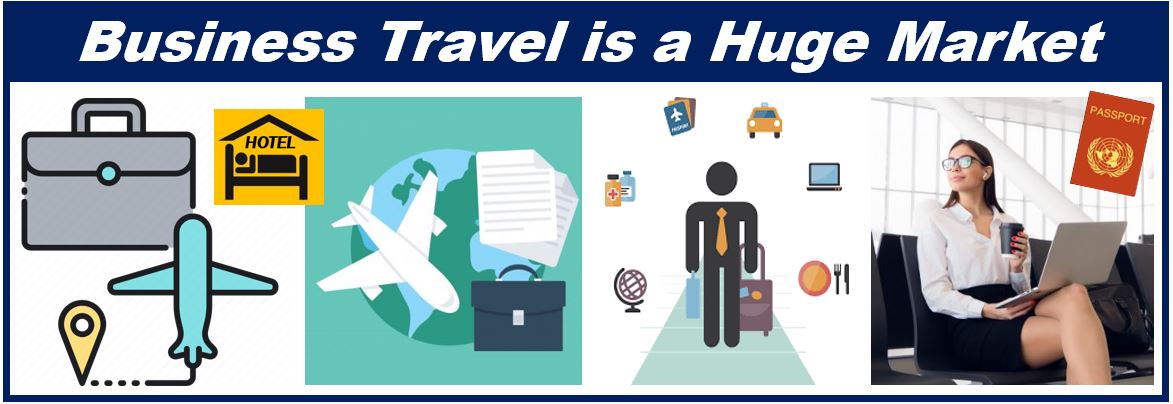
If I say: “John is on a business trip,” we imagine he will be away for more than one day.
Wikipedia.org has the following definition of the term :
“Business travel is travel undertaken for work or business purposes, as opposed to other types of travel, such as for leisure purposes or regularly commuting between one’s home and workplace.”
Why go on a business trip?
There are literally dozens of reasons for business travel. Even if your employer is not a commercial entity, your trips may still be classed as business ones.
What about military personnel who specialize in purchasing defense equipment, missiles, vehicles, and airplanes who are flying to a military air show? Is this an example of business travel? Yes, it is.
So, rather than saying that business travel relates to journeys that are business related, we should say that they are work related.
Below is a list of types of trips people can make for work purposes:
- Attending a conference, convention, or trade show.
- Considering, examining, inspecting, or assessing new markets.
- Evaluating a project site.
- Going for a job interview far away (especially if your are an executive or specialized professional).
- Installing equipment for a customer.
- Meeting with colleagues (from the same company) at a faraway location.
- Motivating your staff to boost employee loyalty.
- Negotiating with suppliers.
- Networking.
- Promoting a product or service.
- Seeing a demonstration of something you may buy.
- Visiting customers.
- Meeting prospects (contacts who could turn into a customers).
- Apologizing to somebody.
Business travel and COVID-19
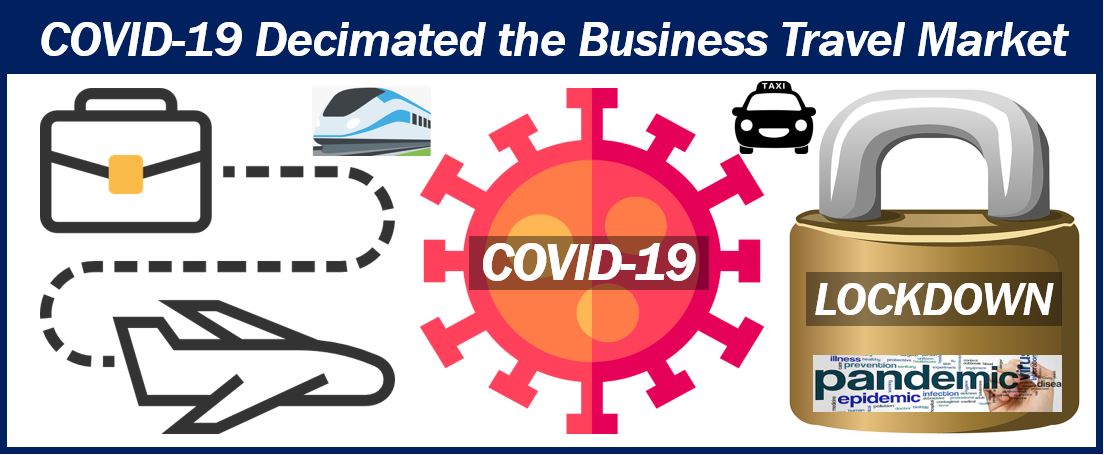
The market for business travel globally is huge. The World Health Organization says that approximately thirty percent of international trips are business-related. Until the coronavirus (COVID) pandemic hit at the beginning of 2020, the market had been forecast to expand rapidly over the next decade.
However, COVID-19 changed all that. The year 2020 saw a dramatic decline in all types of travel, including by air, ship, and land. Business traveler numbers are no exception. As businesses embrace modern telecommunication tools to communicate with employees, clients, suppliers, and other stakeholders, a new trend has evolved – the trend of replacing business travel with online meetings and events.
In August 2020, in the middle of the coronavirus pandemic, Alexander Joe wrote the following in an article we published :
“Business travel has been hit hard during the pandemic. Before you make travel arrangements, make sure that you are permitted to enter your country of destination by checking the latest government guidelines. If possible, it is wise to avoid travel, and if possible, to conduct meetings with colleagues and clients digitally for the time being.”
A permanent trend?
Many conference organizers and airline executives wonder whether this new online trend will prevail after the pandemic is over. Companies have not only found that modern technology is suitable for their needs, but also that communicating online with faraway people is considerably cheaper than face-to-face.
Anything that saves money and helps boost the bottom line is an attractive prospect for CEOs and board members. Bottom line , in this context , means net profit, net earnings, net income, or net EPS (earnings per share).
In a BBC article, Natasha Frost wrote :
“Since the Covid-19 pandemic hit, business travel has ground to a halt. We’ve moved critical client meetings to Zoom, allowed our frequent-flier cards to gather dust and learned how to communicate with colleagues around the world without jumping on a plane.”
“But is this the start of a new normal for business travel?”
Pros and cons of business travel
Traveling is great for broadening the mind and learning new things. However, if somebody has a family, there is definitely a price to pay. Missing family events may contribute to relationship difficulties.
It is also difficult if you don’t have any children but have a partner at home that you like to be with as much as possible.
Many people who travel frequently on business say that they feel lonely while away. Healthcare professionals, for example, have commented that several of their patients who regularly go on business trips show signs of declining mental health, and in some cases, depression.

Jet lag or jet lag disorder is common for people who travel across time zones. Jet lag is primarily a temporary sleep disorder which can make you feel unwell and cause daytime fatigue. Sufferers often find it hard to stay alert and may also have gastrointestinal problems.
If you suffer from jet lag, you have a greater risk of being involved in a road accident. Try to get somebody else to drive if you feel drowsy when you get back from your trip.
If your business travel is successful, i.e., good for your employer, your opportunities for promotion may improve. If you visit branches of your company, you will make new face-to-face contacts. In fact, one of them may offer you an interesting position in the future. Without your trips, this opportunity may never arise.
On a personal note, if you like learning about different cultures and how people abroad go about their lives, business travel is great. Not only do you learn a lot, but you also do it on the company’s expense.
If you accumulate lots of airmiles or reward points, you can use them for big discounts when you take your family on vacation. You may get special concessions from airlines, airports (VIP lounges), hotel chains, restaurants, currency exchange agencies, and car rental companies.
With the advancement of smart technology, business travel is becoming more efficient as travelers can check in, navigate airports, and manage itineraries using their smartphones.

Terms related to business travel
There are many words and expressions in the English language that are related to business travel. Let’s look at six compound phrases that contain the words “business travel,” understand their meanings, and see how they are used in a sentence:
Business travel expenses
The costs incurred while traveling for work purposes. Example: “The finance department requires all receipts to accurately reimburse business travel expenses.”
Business travel policy
A set of guidelines a company establishes for employees to follow when traveling on business. Example: “Before booking your flight, please review the business travel policy for approved airlines and accommodation.”
Business travel insurance
Insurance coverage designed to protect travelers from risks associated with traveling for work. Example: “Given the unpredictability of international trips, our company always recommends purchasing business travel insurance.”
Business travel management
The process or practice of managing and organizing corporate travel. Example: “Our agency specializes in business travel management, ensuring clients have a seamless experience.”
Business travel consultant
A professional who advises on and arranges all aspects of travel for businesses and their employees. Example: “To optimize our travel budget, we hired a business travel consultant.”
Business travel planner
A tool or service used to organize the details of travel for work. Example: “The business travel planner app was instrumental in coordinating the complex itinerary for our sales team’s roadshow.”
Video – What is Business Travel?
This video, from our YouTube partner channel – Marketing Business Network – explains what ‘Business Travel’ is using simple and easy-to-understand language and examples.
Share this:
- Renewable Energy
- Artificial Intelligence
- 3D Printing
- Financial Glossary
BUSINESS STRATEGIES
11 travel business ideas to get you started

Starting a business in the travel industry can be a lucrative opportunity where you’ll provide travel services to individuals and groups looking to get away, celebrate a milestone or travel for work. As people increasingly prioritize experiences over material goods, demand is consistently on the rise for travel-related services. The consistent demand makes a travel business an appealing recession-proof business idea as well.
11 travel business ideas to inspire you
Here are eleven travel business ideas to help you choose the right niche.
Travel agency services
Adventure travel planning
Luxury travel planning
Cruise planning services
Business travel management
Destination wedding planning
Cultural and historical tours
Family vacation planning
Eco-friendly travel services
Solo travel planning
Group travel packages
01. Travel agency services
Provide comprehensive travel planning services, including itinerary creation, accommodation bookings and transportation arrangements. This type of service is usually on a commission basis, earning you a percentage of the total travel cost.
02. Adventure travel planning
Specialize in planning adventurous trips, such as hiking expeditions, wildlife safaris and extreme sports vacations. This niche can attract clients seeking unique and exciting travel experiences.
03. Luxury travel concierge
Offer premium travel concierge services for high-end clients, including luxury accommodation, private transportation and exclusive experiences. This niche can be lucrative but requires attention to detail and a network of luxury service providers.
04. Cruise planning services
Focus on planning cruise vacations, including cruise line selection, itinerary planning and shore excursions. Cruises are popular among various demographics, providing a broad client base.
05. Business travel management
Specialize in managing corporate travel needs, including booking flights, accommodations and coordinating business events. This type of service requires a strong understanding of business travel requirements. This can be a great scalable business idea , as you can work with multiple businesses around the world or big corporations with multiple locations.
06. Destination wedding planning
Provide destination wedding planning services, helping couples organize and execute their dream weddings in exotic locations. This niche combines travel planning with event coordination.
07. Cultural and historical tours
Design and organize tours focused on cultural and historical experiences, catering to travelers interested in learning about different cultures and exploring historical landmarks.
08. Family vacation planning
Tailor travel packages for families, including child-friendly accommodations, activities and transportation. This niche can be rewarding, catering to families looking for stress-free travel experiences.
09. Eco-friendly travel services
Differentiate your business by offering eco-friendly travel solutions, appealing to clients with a focus on sustainable and responsible travel practices.
10. Solo travel planning
Cater to solo travelers by providing customized itineraries, safety tips and group travel opportunities. Solo travel is a growing trend, and this niche can tap into a lucrative market segment.
11. Group travel packages
Create and organize group travel packages for various interests, such as culinary tours, wellness retreats or photography expeditions. This niche can attract like-minded individuals looking for shared travel experiences.
How to get started with your travel business idea
Apply your industry knowledge and experience.
Develop a deep understanding of various travel destinations, accommodations, transportation options and industry best practices, depending on the travel services you offer.
Choose your specialization or niche
Consider specializing in a specific travel niche or industry to provide tailored services. This can help you gain a professional reputation in a particular niche, attracting repeat business and new clients. Pro tip: Create a business plan to map everything out.
Build a professional network
Establish connections with travel service providers, hotels and other industry professionals to enhance your offerings. Consider creating a website to expand your online presence and market your travel services.
Choose a legal structure for your business
Decide on the legal structure of your business, such as a sole proprietorship , LLC or corporation . Ensure you comply with any regulations or licensing requirements in the travel industry.
Determine your pricing strategies
Choose your pricing model, whether it's service fees, commission-based or a combination. Research local market rates and competitors to ensure your pricing is competitive and reflective of the value you provide.
Travel business examples (built on Wix) to inspire
Wanderlust adventures.
This travel agency offers a variety of adventure travel packages, including hiking, wildlife safaris and cultural experiences.
Luxe Life Ventures
A premium travel concierge service providing exclusive luxury travel experiences for discerning clients.
CruiseDreams Planning
Specializing in cruise vacation planning, CruiseDreams helps clients find the perfect cruise experience tailored to their preferences.

Travel business ideas FAQ
What types of travel services can i offer in my travel business.
The travel industry offers a wide range of services. You can consider offering general travel planning, adventure travel, luxury travel concierge, cruise planning, business travel management, destination wedding planning, cultural and historical tours, family vacation planning, eco-friendly travel services, solo travel planning and group travel packages.
How can I attract clients to my travel business idea?
What equipment and supplies do i need to get my travel business idea off the ground, how do i determine pricing for my travel services, how can i ensure the safety of my clients during their travels, how can i differentiate my travel business idea from competitors, how can i expand my travel business idea as it grows, other business ideas to consider.
Service business ideas
Businesses to start with little money
Unique business ideas
Online business ideas
Low-cost business ideas
Side business ideas
Outdoor business ideas
Home-based businesses
Mobile business ideas
Consulting business ideas
Freelance business ideas
Reselling business ideas
Business ideas for couples
Rental business ideas
Small town business ideas
Wedding business ideas
Print on demand business ideas
Music business ideas
Finance business ideas
Cleaning business ideas
Marketing business ideas
Art business ideas
Tech business ideas
Restaurant business ideas
Fitness business ideas
AI business ideas
Related Posts
How to start an LLC in New York in 7 steps
How to start an LLC in Arizona in 7 steps
How to start a business in Tennessee in 7 steps
Was this article helpful?

The 5 Types of Business Traveler

By The Center Team on January 16, 2019
What type of business traveler are you? We surveyed 300 employees to get a handle on employee attitudes toward business travel in the age of Uber and Airbnb.
Travel is typically one of the biggest drivers of a company’s discretionary spend, especially for companies with sizable sales teams. Yet it’s also one of the most difficult to corral, as control continues to shift away from centralized travel departments, toward employees arranging their own flights, lodging, and transportation—often right from their phones.
We wanted to get a handle on employee attitudes toward business travel in the age of Uber and Airbnb, so we surveyed more than 300 employees to find out more. We identified five distinct types of business travelers.
1. The Cost-Conscious Traveler (28%)
- Cost-conscious travelers were more likely not to know what the budget is (22% vs. 16% overall). They’re doing their best to do the right thing despite a lack of clear information.
- This well-intentioned group was most likely not to complain about doing expense reports—4 out of 5 agree that they’re necessary to a well-functioning business.
2. The Policy Follower (37%)
- Policy followers are more likely to use online software like Concur (27% vs. 21% overall), and more likely to know what the budget is and keep spending within it (70% vs. 61% overall). This suggests that online tools, clear policies, and budget visibility play a significant role in keeping spending in check.
3. The All Business, All the Time Traveler (15%)
- This type of traveler was more likely to file expense reports manually (64% vs. 52% overall) and to say that filing expense reports is time consuming (39% vs. 27% overall). Comparing to the Policy Follower suggests that manual processes, combined with a “spend now, get approval later” model, make it more challenging to keep discretionary spend in check.
- This group was somewhat more likely to charge things like rideshare services, music subscriptions, meal delivery, and Amazon purchases under the radar (19% vs. 13% overall).
4. The Work the Perks Traveler (13%)
- This group was three times more likely to agree that expense reports are a waste of time, or that they don’t see the point (19% vs. 6% overall).
- This type of traveler was also more likely not to know what the budget is and just spend what they need (20% vs. 16% overall).
5. The Budget Renegade (6%)
- Most of these travelers (87%) are not required to submit expense reports. Of those that do, they’re more likely to complain that expense reports are time-consuming (40% vs. 27% overall).
- Budget Renegades are nearly twice as likely not to know what the budget is; they just spend what they need to get the job done (31% vs. 16% overall).
When there’s a lack of clarity and visibility into policies and budgets, a subset may Work the Perks , but many more do their best to make the most Cost-Conscious decisions. And companies who make clear policies and centralized tools a priority are rewarded with responsible Policy Followers .
Business needs change more frequently than budgets do, however, so there are times when employees need to be empowered to make smart, strategic spending decisions. All Business, All the Time spenders and even Budget Renegades believe their spending choices support larger business goals—which they certainly can, as long as their decisions yield results and don’t result in unexpected surprises.
The key is for businesses to have clear policies in place , for employees at all levels to have visibility into those budgets and policies, for budgets to be adjusted regularly along with changing business needs , and for teams to have frequent communication about how spending decisions do (or don’t) support the larger strategy .
TO THE POINT:
Across all five groups, we see employees generally trying to do the right thing when it comes to business travel.
- Today's news
- Reviews and deals
- Climate change
- 2024 election
- Fall allergies
- Health news
- Mental health
- Sexual health
- Family health
- So mini ways
- Unapologetically
- Buying guides
Entertainment
- How to Watch
- My Portfolio
- Latest News
- Stock Market
- Premium News
- Biden Economy
- EV Deep Dive
- Stocks: Most Actives
- Stocks: Gainers
- Stocks: Losers
- Trending Tickers
- World Indices
- US Treasury Bonds
- Top Mutual Funds
- Highest Open Interest
- Highest Implied Volatility
- Stock Comparison
- Advanced Charts
- Currency Converter
- Basic Materials
- Communication Services
- Consumer Cyclical
- Consumer Defensive
- Financial Services
- Industrials
- Real Estate
- Mutual Funds
- Credit cards
- Balance Transfer Cards
- Cash-back Cards
- Rewards Cards
- Travel Cards
- Student Loans
- Car Insurance
- Morning Brief
- Market Domination
- Market Domination Overtime
- Asking for a Trend
- Opening Bid
- Stocks in Translation
- Lead This Way
- Good Buy or Goodbye?
- Fantasy football
- Pro Pick 'Em
- College Pick 'Em
- Fantasy baseball
- Fantasy hockey
- Fantasy basketball
- Download the app
- Daily fantasy
- Scores and schedules
- GameChannel
- World Baseball Classic
- Premier League
- CONCACAF League
- Champions League
- Motorsports
- Horse racing
- Newsletters
New on Yahoo
- Privacy Dashboard
Yahoo Finance
Global business travel trends report 2024: impacts of covid-19, consumer trends, sector deals, challenges and opportunities.
Dublin, May 28, 2024 (GLOBE NEWSWIRE) -- The "Key Trends in Business Travel (2024)" report has been added to ResearchAndMarkets.com's offering. Analysis of the business travel sector including insights in business travelers, market trends influenced by COVID-19, consumer trends, destinations, sector deals, challenges and opportunities. Key Highlights
The overall outbound trips for business purpose during 2023 was 174.23 million which was an increase of 68.95% in comparison with 2022 (103.3 million trips). Globalization drives the demand for international business travel, as businesses expand their operations, diversify revenue streams, and capitalize on emerging trends. However, the outbound trips undertaken during 2023 remains lower than its pre-pandemic level in 2019 (207.28 million trips). The analyst forecasts that outbound business travel is set to reach pre-pandemic levels in 2024 (220.12 million) and reach 276.63 million trips in 2028 with a CAGR of 9.69% from 2023 to 2028.
According to the analyst's traveler demands and flows database, Chinese travelers took 13.87 million outbound business trips in 2023, which represented 7.96% of overall global business trips. Although there has been tremendous growth in China's domestic tourism after the removal of the country's domestic zero-COVID policies, its outbound tourism has faced more constraints.
The global business travel market value in 2019 reached $239.34 billion, which decreased by 3.7% ($9.09 billion) compared with 2018 ($248.43 billion). The pandemic significantly impacted the business travel industry, resulting in a reduction in market value to $96.58 billion in 2020 due to travel restrictions and a subsequent decline in employees' confidence to travel for business purposes. The recovery phase has been under way since 2021, and thanks to a reduction in travel restrictions, the market value reached $145.49 billion in 2021 before rebounding further to $197.23 billion in 2022. However, the market value of business travel was lower than the pre-pandemic level.
During 2023, the overall global international arrivals for business purposes reached 166.01 million trips, which was an increase of 44.79% compared with 2022 (114.66 million trips). However, this is still lower than its pre-pandemic level in 2019 (209.00 million trips). The pandemic in 2020 caused a significant decline in business travel, causing many employees to work from home and canceling scheduled meetings and conferences.
This report provides an analysis of the business travel sector including insights in business travelers, market value, market trends influenced by COVID-19, consumer trends, sector deals, challenges and opportunities.
Reasons to Buy
Gain an insight into Business travel's leading players.
Understand how they have adapted to the threat of COVID-19
Understand the key business travelers that companies can look to attract
Gain a detailed understanding of the key trends, issues and chellenges facing business travel companies (TMCs)
Key Topics Covered:
Business Travel Passenger Flows
Business Travel Market Value
Main and Key Destinations
Projects, Mergers and Acquisitions
Product Developments
Key Market Trends
Challenges and Opportunities
A selection of companies mentioned in this report includes, but is not limited to:
Booking Holdings
Expedia Group
American Express Global Business
Flight Centre Travel Group Ltd
CWT (Carlson Wagonlit Travel)
Corporate Travel Management Ltd
For more information about this report visit https://www.researchandmarkets.com/r/y6pszs
About ResearchAndMarkets.com ResearchAndMarkets.com is the world's leading source for international market research reports and market data. We provide you with the latest data on international and regional markets, key industries, the top companies, new products and the latest trends.
Six trends shaping new business models in tourism and hospitality
As destinations and source markets have changed, tourism and hospitality companies have evolved too. Six key trends have shaped business models in this sector over the past decade.
About the authors
This article is a collaborative effort by Caroline Tufft , Margaux Constantin , Matteo Pacca , and Ryan Mann , with Ivan Gladstone and Jasperina de Vries, representing views from McKinsey’s Travel, Logistics & Infrastructure practice.
In accommodation, asset-light models like franchising and management have proliferated, though luxury and small-scale brands are opting out. Consolidation has driven economies of scale. Hotels are looking to reclaim their relationship with guests, and almost two decades in, home sharing is charting its own course.
In the experiences space, reinvention is the name of the game. Cruises and theme parks have both focused on attracting new demographics while fine-tuning their revenue management strategies. Experiences remains a highly fragmented, legacy sector, creating massive opportunity for those able to crack the code on aggregation.
By considering the six trends, tourism and hospitality companies can gain insights on business practices for today—and on areas of future opportunity.
Accommodation: New models and value propositions
Large hotel brands have increasingly turned away from hotel ownership, scaling their business through franchising and management instead. The move is paying off. We find there is a 0.84 correlation between a hotel company’s share of franchised properties and its net profit margin.
Not all of hospitality is embracing asset-light model, however. Luxury hotel chains have resisted the trend, largely retaining in-house ownership to control standards. And smaller brands may find that they cannot reach the economies of scale that make the math of a franchise business work—focusing instead on creating distinctive experiences on a smaller scale.
Consolidation set the stage for the past decade. Several hotel brands quickly grew their foothold in key geographies and customer segments through strategic acquisitions, achieving economies of scale along the way.
As major hotels take a breather from a series of substantial acquisitions, further mergers between large hotel brands seem unlikely. However, tuck in acquisitions to target key growth demographics, like the luxury and youth categories, are likely to continue.
Another trend on the horizon is direct booking. Long reliant on online travel agencies, hotels are looking to reclaim their relationships with customers—both to cut down on intermediary booking fees and to learn more about their guests. Hotels are encouraging direct bookings through a variety of levers, ranging from best-rate guarantees to higher reward-earnings rates and improved mobile applications. 1 For example, Hyatt offers a best-rate guarantee for booking on hyatt.com and Marriott International is growing direct bookings. For more, see “Marriott sees record direct bookings at its hotels,” Skift, May 4, 2022.
Home sharing is here to stay. The segment has grown from 10 to 14 percent of booking value between 2017 and 2023, experiencing ups and downs in profitability along the way.
Recently, home sharing has positioned itself as more than a stand-in for traditional hotels. Airbnb’s recent advertising campaign “Get an Airbnb” leaned into the differences of home sharing from other hospitality offerings, emphasizing the space and privacy that renting a house can offer. 1 Samantha Shankman, “‘Get an Airbnb’ campaign challenges hotels,” Skift, August 30, 2023.
Home-sharing companies have also become a key distribution channel for smaller hotels, as they can offer more control over inventory and lower fees than other channels. In 2019, Airbnb reported a 152 percent increase in the number of rooms available for booking through its platform in boutique hotels, bed and breakfasts, and resorts. 2 “More hotels are using Airbnb,” Airbnb news release, January 16, 2019.
Experience providers: New segments and revenue streams
Cruises may only account for 2 percent of the overall travel and tourism market, but they have achieved 6 percent yearly revenue growth in the past decade. 1 McKinsey analysis of publicly listed tourism and hospitality companies’ Form 10-Ks. Attracting new travelers and providing new experiences have been key growth strategies.
Luxury hotels are capturing the new-to-cruising segment with the launch of yacht brands, purposefully positioned as a distinct experience from traditional cruises. Meanwhile, millennials are challenging stereotypes about cruising: of all cruise passengers, they are the demographic most likely to say they plan to cruise again (88 percent). 2 State of the cruise industry 2023: September 2023 update, CLIA, September 2023.
In parallel, cruises have fine-tuned their profitability through economies of scale and new revenue streams. Megaships have become the new normal, as ships with over 3,000 berths have grown from 27 to 47 percent of the global cruise fleet since 2015. Ancillary purchases such as onshore excursions and onboard casinos have also become a major source of growth, now accounting for 30 percent of revenue on average. 3 Calculated using the weighted average based on 2023 Form 10-Ks statements of publicly listed cruise companies.
Theme park attendance has grown 3 percent a year over the past decade, as theme park providers capitalize on new demographics and refine their revenue management strategies. 1 Global attraction attendance report , joint report from AECOM and Themed Entertainment Association, 2019.
Two new groups of visitors in particular are powering growth. First, the Asia–Pacific region accounted for much of the growth in theme park attendance in the past decade: of the total number of new visitors between 2013 and 2018, 57 percent were from Asia. Second, millennials are heading to parks in greater numbers, and not just for their children. A similar proportion of millennial parents (78%) and millennial nonparents (75%) say they are interested in going to a theme park. 2 Morning Consult survey, 2,201 participants, June 14–19, 2018.
To increase value from growing attendance, theme parks have become increasingly sophisticated in the field of revenue management. Demand-based pricing, tiered annual passes, and skip-the-line fees are all poised to go from pioneering to widespread practices.
Experiences are increasingly important to travelers, but the segment remains a highly fragmented space. Operators of activities ranging from walking tours to snorkeling outings tend to be small businesses with a limited digital presence.
This has created an opportunity for tech-forward companies to help travelers discover and book experiences. Destination marketing organizations have long played a role in this. For instance, VisitScotland helps visitors discover interesting activities like attending Harry Potter filming locations and whiskey tastings.
Several private companies that offer online discovery and booking platforms for travel activities, like Viator, GetYourGuide, and Klook, have achieved considerable growth in the US, European, and Asian markets. 1 Yeoh Siew Hoon, “GetYourGuide gets into pole position to win in $250b experiences market,” WIT, September 20, 2023. GetYourGuide grew its revenue fourfold between 2022 and 2023, Viator revenue was up 49 percent for the same time period, and Klook reported twice as many new customers in 2023 as in 2019. 2 “Klook completes US$210 million funding, embarks on a new era of profitable growth,” Klook news release, December 6, 2023; Mitra Sorrells, “With speculation of a sale in the air, Tripadvisor reports record revenue driven—again—by Viator,“ Phocus Wire, February 14, 2024.
Looking forward: Strategies to stay ahead of the curve
Where does this leave tourism and hospitality companies? Companies in any given sector tend to follow a power law curve : a small share of companies account for an outsize portion of both profits and losses. The tourism and hospitality sector is no different.
Over the past decade, publicly listed accommodation and experience providers grew revenue at 3 percent and 4 percent, respectively, roughly in line with global GDP growth. Accommodation providers increased their profits by five percentage points, while experience providers remained at an 18 percent average profit margin.
As stakeholders gear up for the next decade, there are things that businesses across the sector can do to sustain their hard-won growth—and profits. Moving forward, three strategies in particular can help tourism and hospitality companies stay on the leading edge of innovation.
Unbundle offerings
Hotel and experience providers can take a page from the airline playbook by unbundling rates and letting consumers pay for the exact experience they want. For example, at the time of booking, hotels can present guests with an individually priced bundle for a room on a higher floor, including breakfast and free parking—features that the guest’s past behavior suggests they would particularly value. Ensuring that guests can find their ideal room can lead both to increased revenue and increased satisfaction. A major hotel brand reported that guests chose to spend an additional $22 per night, on average, to customize their hotel room to their liking. 1 “IHG Hotels & Resorts revolutionizes booking experience through next-gen cloud solutions,” InterContinental Hotels news release, September 12, 2023.
Cross-sell exclusive experiences
For accommodation and transportation companies, partnering with experience providers to cross-sell a full journey provides an opportunity to tap into a growing area of traveler spending—and a chance to deepen the relationship with customers as a vacation creator. For example, airlines can partner with museums to offer discounted rates if booked at the time of the flight, or hotels can partner with a historical site nearby to offer early-hours admission. For uptake rates to become significant, the partnership needs to add value beyond mere cross-selling. Offering features like insurance or an option to buy now and pay later is one way to add value; creating a distinctive experience like a combined train and historic hotel journey is another.
Embrace a data-powered strategy
Tourism and hospitality entities individually hold a treasure trove of untapped data. Take Paris: hotels may see a surge in bookings for the “shoulder season.” Experience aggregator platforms might see that street food tours have attracted rising interest. Social media might reveal that a particular neighborhood is exploding in popularity. What special guest experiences could be created by combining these insights? Stakeholders can unlock new revenue streams by thinking through what data they hold that can be of value to others. More broadly speaking, combining multiple sources of data can help guide a strategy of unbundling and cross-selling to create more gratifying and pertinent experiences for travelers around the world. Embracing data isn’t just smart—it’s the future of travel.
Caroline Tufft is a senior partner in McKinsey’s London office, Margaux Constantin is a partner in the Dubai office, Matteo Pacca is a senior partner in the Paris office, Ryan Mann is a partner in the Chicago office, Ivan Gladstone is an associate partner in the Riyadh office, and Jasperina de Vries is an associate partner in the Amsterdam office.
The authors wish to thank Abdulhadi Alghamdi, Alessandra Powell, Alex Dichter, Cedric Tsai, Diane Vu, Elisa Wallwitz, Lily Miller, Maggie Coffey, Nadya Snezhkova, Nick Meronyk, Paulina Baum, Peimin Suo, Rebecca Stone, Sarah Fellay, Sarah Sahel, Sophia Wang, Steffen Fuchs, Steffen Köpke, Steve Saxon, and Urs Binggeli for their contributions to this article. The authors also wish to thank Mabrian for providing data.
Explore a career with us
Related articles.

How the world’s best hotels deliver exceptional customer experience
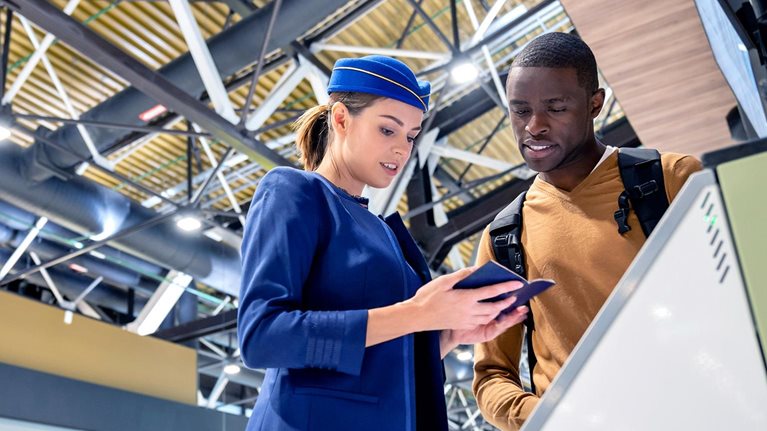
What AI means for travel—now and in the future
13 Tips for Choosing the Perfect Domain Name
Published: May 27, 2024
Choosing the right domain name for your company is so important — ultimately, it’s how your audience will find and remember you.

The best domain is a custom domain that works for you. Sometimes, the best domain name for you might break some best practice rules. I’ve got websites built on domains that follow best practices, including those with keyword-rich domains, and other domains break the best practice rules big time; they’re even hard to spell.
With over 700 million domain names registered , it can be hard to find one that’s unique and functional. But, in this article, I’ll help you find a custom domain that will help your website stand out from the crowd and possibly even boost your SEO. I’ll help you choose and buy a domain while sharing the insights and tips I’ve learned along the way.

Table of Contents
What Makes A Good Domain Name?
How to choose a domain name for your business, how to choose a domain name for your blog, domain name generator, establish brand identity by picking the perfect domain name.
The best domain names balance memorability, longevity, and sometimes SEO. There’s a lot to think about when choosing the right domain name, but before I get into all those steps, let’s first identify what makes a good domain.
Ideally, you’ll pick one domain name you’ll stick with forever. This might seem scary, and it’s okay to change your domain later, but it’s better if you don’t — so don’t take this decision lightly.
The reason why longevity matters is because you want a domain name that’s stable to avoid confusing your audience.
There’s another lesser-known reason, and it’s related to SEO: a domain name builds authority. Basically, an older domain with high-quality content becomes trusted by Google and is theoretically easier to rank. The longer you spend with a domain and the more you build it up, the bigger the potential loss if you change it.
Again, you can change your domain, and there are lots of things you can do to protect that built authority, but the absolute best practice is to choose a domain that you can stick with.
SEO Considerations
As well as authority, your domain name can help bolster your SEO efforts. Domains including a keyword can help websites rank.
You want to balance the benefits of using the keyword in the URL against using a brand keyword. I’ll discuss the nuances of choosing keyword-rich domains later including when I think it’s appropriate and when to stay with the brand name.
Memorability
Your domain name is how your audience will find and remember you. The best domain names are memorable to your audience so they can easily find you again.
If you are ready to establish a presence online for your business, you’ll want to choose a domain name that matches your brand. This way, customers can easily find and trust your site. There are a few steps you can keep in mind when choosing your domain name.

Free Website Design Inspiration Guide
77 Brilliant Examples of Homepages, Blogs & Landing Pages to Inspire You
- Agency Pages
- Ecommerce Pages
- Tech Company Pages
You're all set!
Click this link to access this resource at any time.
4. Stay unique, specific, and on-brand.
With all of these things to keep in mind, it can be hard to brainstorm a domain name that is clear and concise while also remaining unique and true to your business.
But it’s certainly doable. Keep your business name and what you sell at the forefront of your mind, and dig into your niche to ensure that your domain name attracts the online audience you want.
I always find it hard to come up with domains. I usually have to go through a few versions of ideas and get knocked back a lot by the time I’ve searched its availability to find it’s taken.
Nowadays, I use ChatGPT to help me brainstorm domain name ideas. Using a fake scenario, here’s an example of what I’d ask ChatGPT.
I asked ChatGPT, “Can you help me come up with the best domain name for a new blog? I want to share my budget travel adventures.”
ChatGPT came up with some great starting points.
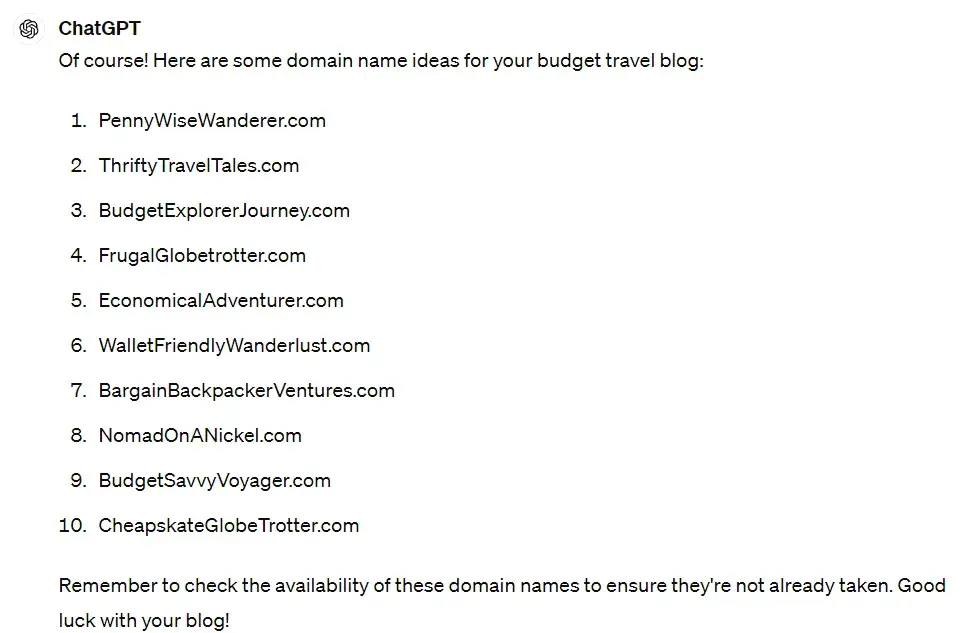
Domain names are hot commodities, but they are also pretty affordable. As long as your idea isn’t trademarked or already in use, grab it before it’s gone! You can always change it later if you decide it just isn’t working.
I understand that this is a lot to digest. But just as there are generators to help you find excellent hashtags and keywords, there are also tools to help you find domain names (in addition to using ChatGPT).
You can take some of the keywords and brand-related words you’ve brainstormed through the above tips and add them to a domain name generator, which will use those words and related words to create lists of available domain names.
Even if you don’t pick a domain name exactly from the generator, it can help inspire your team to find a domain name that is perfect for your business or blog. Here are some of the top domain name generators to try.
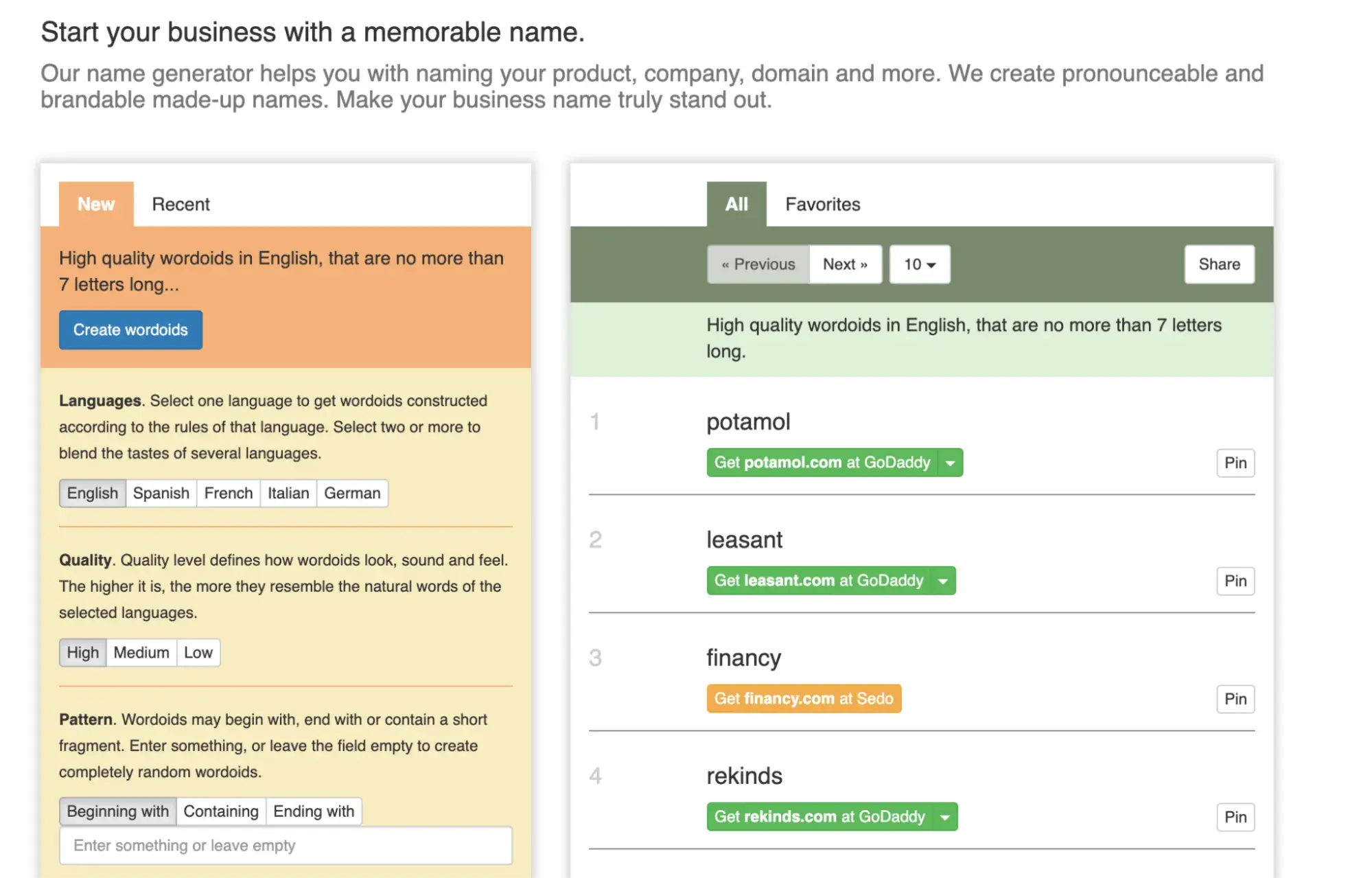
Don't forget to share this post!
Related articles.

The Best Web Hosting for Small Business Sites in 2024: 12 Favorites

Best Video Hosting Sites: The Top 11 Sites in 2023

Domains and Domain Names: What They Are and 10+ Examples

Everything You Need to Know about Custom Domains

The 13 Best Blog Hosting Sites to Launch a Winning Blog in 2024

14 Best Domain Registrars to Consider This Year

Serverless Functions: Your Website's New Best Friend

The Ultimate Guide to Web Hosting

What Is a CDN? Understanding Content Delivery Networks
10 Best Windows Web Hosting Platforms for 2024
Launch your WordPress website with the help of this free guide and checklist.
CMS Hub is flexible for marketers, powerful for developers, and gives customers a personalized, secure experience
- Updated Terms of Use
- New Privacy Policy
- Your Privacy Choices
- Closed Captioning Policy
Quotes displayed in real-time or delayed by at least 15 minutes. Market data provided by Factset . Powered and implemented by FactSet Digital Solutions . Legal Statement .
This material may not be published, broadcast, rewritten, or redistributed. ©2024 FOX News Network, LLC. All rights reserved. FAQ - New Privacy Policy
'Ground stop' at one of America's busiest airports on one of year's busiest travel weekends
Memorial day delays expected at busy new york city travel hub.

Charles Payne: Memorial Day should not be taken for granted
'Making Money' host Charles Payne shares a special Memorial Day message.
One of the busiest airports in the U.S. has been issued a ground stop amid a hectic Memorial Day travel weekend.
On Monday afternoon, John F. Kennedy International Airport in Queens, New York, was issued a ground stop by Air Traffic Control System Command Center, which is part of the Federal Aviation Administration (FAA). Thunderstorms were listed as the cause for the ground stop.
The ground stop period is expected to last from 6:30 p.m. to 7:45 p.m. on Monday evening.
JFK Airport is considered one of the most bustling airports in the United States. It is consistently rated among the top 10 busiest airport hubs in the U.S.
BOEING FACING 'LONG ROAD' IN ADDRESSING SAFETY ISSUES, FAA CHIEF SAYS
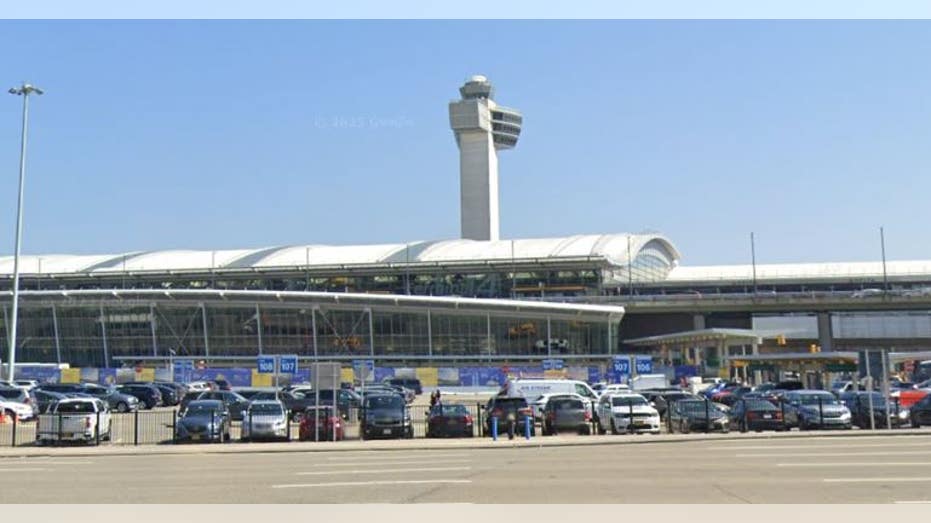
John F. Kennedy International Airport in Queens, N.Y. (Google Maps / Google Maps)
Fox News Digital reached out to the FAA for an additional statement.
BOEING HAS A 'MORAL COMPASS PROBLEM,' VETERAN PILOT ARGUES

A passenger aircraft takes off from JFK international Airport in New York as the Manhattan skyline looms in the distance on Feb. 5, 2024. (CHARLY TRIBALLEAU/AFP via Getty Images / Getty Images)
This story is still developing. Check back with us for updates.
- NEW COLOURS
- Classic Tech
- Classic Plus
- Classic Pro
- Classic Flight
- Military Backpack
- Underseat Bags
- Laptop Backpacks
- Gym and Work Backpacks
- Minimalist Backpack
- > Show All
- Classic Cross Body Bags
- Packing Cubes
- British Airways
- Backpack Size Guide
- > More Backpack Guides
- Carry On Luggage Size Guide
- > More Cabin Bag Guides
- Travel Gift Guide
- > More Travel Gift Ideas
- CabinZero Stories
- Digital Nomads Hub
- Product & Style
- Travel News
- Packing Tips
- Packing Lists
- Air Travel Tips by Airlines
- Luggage Tips
- Pre-flight Checklist
- In-flight Checklist
- Layover Tips
- CABIN MILES
- Backpacks CLASSIC NEW COLOURS Classic Classic Tech Classic Plus Classic Pro Classic Flight ADVENTURE NEW COLOURS ADV ADV Pro ADV Dry MILITARY Military Backpack SIZE 28L 30L 32L 36L 42L 44L SHOP BY FUNCTION Cabin Bags Underseat Bags Laptop Backpacks Daypacks Gym and Work Backpacks Minimalist Backpack
- Shoulder Bags > Show All SHOULDER BAGS Sidekick Flipside Flapjack Classic Cross Body Bags
- Bum Bags > Show All BUM BAGS Hustle Hip Bags
- Accessories > Show All ACCESSORIES Rain Cover Packing Cubes Gift Cards
- Blogs Product Guides Backpack Size Guide > More Backpack Guides Carry On Luggage Size Guide > More Cabin Bag Guides Travel Gift Guide > More Travel Gift Ideas Our Journey CabinZero Stories Digital Nomads Hub Lifestyle Product & Style Travel News Travel Tips Packing Tips Packing Lists Day Trips Air Travel Tips Air Travel Tips by Airlines Luggage Tips Pre-flight Checklist In-flight Checklist Layover Tips
Best Sites To Book Trips - The Best and Most Reputable Booking Sites For Your Journey
Nowadays, along with the ever-increasing needs in travel and tourism of people around the world, many booking sites have been created as a handful of tools for visitors to ensure that their trip wouldn’t turn out to be such a terrible experience right at the initial point. This article will provide you with a list of the best sites to book trips with multiple services. If you’re only into booking hotels, check out our article about the best hotel booking sites .
Online booking sites are fantastic, since they help you plan your trip for a peace of mind, as well as offer you a fun way to get yourself excited ahead of your upcoming journey. You can simply go on an online booking site or app to plan for most parts of your trip - transportation, accommodation, and other services at ease. So what makes one site better than others?
While the services offered by many websites are similar, it’s the interface that distinguishes them. When you are planning for a vacation to be relaxed and enjoyable, the last thing you need is a stressful, complicated website.
In this article, Cabinzero will review some of the best sites to book trips based on their price, and also on their operation - with simplicity and clarity as the key features to be examined. Additionally, we’ll make sure these travel sites charge no extra fees in the last minutes. Plus, reward schemes will also be taken into account, which would help you to save some money using the booking site more than once in the longer term.
So let’s get started, shall we?

Photo by topntp - stock.adobe.com
Expedia.com - Best Travel Booking Site Overall
Expedia, owned by Expedia Inc., is renowned as one of the biggest and most popular vacation booking sites , especially in the Asia travel market. Although Expedia owns two other sites, Hotels.com and Hotwire.com, we’re fans of the original thanks to its clean and simple to use interface.
With more than 600 million visitors accessing its website, Expedia offers its clients all over the world with a wide range of services including hotel booking, flight deals, and other services.
When you visit this vacation booking site's packages section, you can add up to five connecting flights, decide on accommodation for all or parts of your trip, and tag on car rentals as well. (Interested in more information about car rentals? Check out Best car rentals sites )
It's all very well laid out, and it only takes a few seconds to start planning your trip. If there were a few more options to filter out accessibility issues, it would be the best experience for customers . Still, Expedia.com has everything most people need, and there's even the option of cruise lines if you fancy it.
Furthermore, customers will receive additional discounts for booking multiple parts of your vacation via the site. A Things To Do section completes the site's attempt to help you plan your entire trip in one location.
Overall, Expedia.com is one of the best travel booking sites, providing travellers with comprehensive information and straightforward interface, that offers its customers as much comfort as possible to use.
Booking.com - A Vacation Booking Site With The Best Reward Programs
Launched in 1996, Booking.com is a giant in the online booking industry with 44 different languages available, providing its customers with access to the website at ease. It is known as a cheap holiday booking site as it promises the most affordable pricing on all types of properties, ranging from accommodations, transportation to other services.
Because Booking.com provides its guests with more than 1 million properties in about 277 countries and territories, the website’s interface may be a bit overwhelming and confusing for visitors to use.
However, with a fantastic rewards program, Booking.com is a worthy option that keeps you coming back to the website, making it easier to use once you become accustomed.
You can even book a taxi through this website, leaving you with very little to think about when you get on the road because everything has been planned. What’s more, you needn't pay a booking fee on hotels, which allows you to be flexible when travelling a long distance.
Cheaptickets.com - Best Holiday Package Website If You Have Different Needs
Despite being a booking site acquired by Expedia, along with Hotels.com and Hotwire.com, Cheaptickets.com is a bit different in terms of operation. For package deals, you can easily add on a flight, a hotel, and a car, or any combination of the three, though multiple flights are under a different option.
With Cheaptickets.com, you can also purchase event tickets from the site, which is far more useful if you want to buy the whole trip in one place. Other sites offer the same thing, but CheapTickets is a little more eager to entice you into the process, even if its interface isn’t as modern as others.
On Cheaptickets, there’s the section Vacation Value Finder, where you can somewhat plan your vacation ahead by giving information on how much you are willing to spend for your trip and what you feel like experiencing, then receiving some fun suggestions from the site. This is a great choice for people who are not yet settled their heart down in one place til the last minute.
If you’re a student, verify yourself and you’ll get extra discounts from Cheaptickets. All in all, Cheaptickets is one of the best sites for holiday packages for various needs of a trip.
Kayak.com - The Best Online Booking Site When You’re in A Rush
If you’re in a hurry to book your trip, Kayak will be pretty useful. Kayak is one of the popular hotel search engines, as its goal is to simplify the process of looking for accommodation for a trip. All you need to do is enter a destination, and the site will generate plenty of results from multiple different sources for you to choose from.
Even though this means that you don’t directly book trips through Kayak, and the adverts are sometimes a little overwhelming, the website does help you to get the results quickly and without wandering around on the Internet searching by yourself.
Since you’re going to be sent to another website with full details afterwards, Kayak’s interface is rather basic. It contains numerous filters for you to use along with critical information you could require. Also, the website has a deal section where you can choose the most suitable price for hotels and car rentals.
What makes it even better and more handy for you is that on Kayak, whichever travel site with lowest pricing will be highlighted in green. Therefore, you can instantly see the best deal out of the choices you have!
However, the best offer from Kayak (which makes it to this list of best sites to book trips) should be its discount for Kayak’s members. By joining Kayak’s email membership list, you will receive a discount of up to 35% on a travel choice.

Photo by day2505 - stock.adobe.com
Agoda.com - Best Booking Site for Asian Private Home Rentals
Agoda.com or just Agoda, is a Singapore online travel agency that specialises in apartment and private rentals along with hotels and flights booking.
Rated as the best website to book hotels, Agoda’s customer service is undeniably top-notch. If you are lost in different choices of unique destinations and couldn’t decide until the last minute, feel free to change your mind as there is a 24-hour cancellation policy in place.
Furthermore, even though Agoda’s interface is quite easy to use, you are offered a 24-hour multilingual customer service to help you out whenever you encounter trouble booking your trip on Agoda.
Another plus using Agoda is that there will be plenty of reviews on the destinations, so you’ll have other visitors’ opinions to rely on except from just pictures or videos before booking an accommodation, flight or service.
Traveloka.com - Best Site for Hotel Deals
Traveloka, a popular online booking site in Indonesia, is available in most of the Southeast Asia nations. With a wide range of over 120,000 hotels around the area and all around the globe, as well as over 100,000 different routes in Asia, Europe and America have also partnered with Traveloka to provide low-cost policies.
Traveloka offers not only flight tickets, hotels, motels, villas booking but also other rentals services, excursions, etc. Many customers choose Traveloka as their to-go booking site because of its simple and straightforward interface.
Apart from the most economical pricing, this travel site also has a section called “Price Alert” to warn you before you decide to book anything.
Another plus that makes Traveloka one of the best holiday deals websites is its monthly discounts program, where you can take advantage of and save up to 30% of the flight tickets and hotel room charges. Therefore, if you are interested in visiting countries in Southeast Asia, consider Traveloka as your trip assistant to plan your trip at ease!
Airbnb, which stands for Airbed and Breakfast, is a startup project that allows people who need a rented room to connect with people whose rooms are for rent from all over the world via a mobile app and the website airbnb.com.
Although Airbnb is not a “standard” online booking site as many others listed on this list, it is still a worth considering tool for travellers. Because the price of accommodations on this website is cheaper compared to typical hotel services.
Furthermore, Airbnb is not just a renting service, but also a way to promote cross-cultural understanding between visitors and the “landlords”. If you enjoy travelling within a large group or with your family, renting a villa with low cost is easy using Airbnb. Otherwise, you can save some money on housing by sharing a room with other people at Airbnb.
Google Hotels
We’re all aware that Google is the world’s largest search infrastructure, but do you know that it has engines searching for hotels as well? If you are already (and you should be) familiar with Google platform, Google Hotels won’t disappoint you in terms of its simplicity and straightforwardness!
With the assistance of Google Hotels, hotel management companies can increase their exposure and bookings by allowing customers to search and book hotel rooms online.
Additionally, customers using Google Hotels are able to foresee the hotel pricing and services available right on the platform’s interface. What’s more interesting is that this engine also browses things you can do on your trip, and all you have to do is typing your destinations on the search bar.
Trivago.com
Similar to Kayak.com, Trivago is an online engine that allows users to compare hotel prices in just a few clicks from over 300 different booking sites for around 5 million hotels, motels, and other types of lodging in 190 nations all around the globe. There are also filters for you to refine your finding results and get the best option that fits your needs for your trip.
Besides these, the hotel reviews section - with more than 175 million aggregated ratings and over 19 million images, is another handy tool that assists you in the process of finding out the best accommodation for your trip.
Having difficulties using Kayak and Trivago? Take a look at Momondo instead! Momondo is a Danish airline search engine, which was founded in 2006. Until now, Momondo has become one of the most favourable search engines by many of the travellers seeking for inexpensive flights and accommodations.
Based on your search, Momondo will summarise plenty of results of hotels, motels, etc. and lead you straight to the travel booking site (or travel agency and hotel site) of whichever places you are interested in to book for your room. By that, you can be confident in the reliability of the room you’re going to book.
One disadvantage that may make you enjoy Momondo less is that there isn’t a membership level.
Priceline.com - Best Booking Site for Unbiased Reviews
Priceline.com is one of the best holiday package websites in the travel industry for a good reason. The site’s easy to use, providing its customers with options of flight booking, accommodation booking, car rentals, or even a whole package consisting of these three.
The most exciting thing about this site should be the review section, where dozens of reviews are all from verified customers. Booking online might be surprisingly exhausting sometimes, as you have to spend your time checking and checking whether the illustrations of one place match to itself in reality. Priceline really does you a favour, offering reasonably accurate pictures of what to expect from wherever you’re considering to choose for your upcoming trip.
Overall, Cabinzero has introduced some of the best online booking sites in the travel industry for your consideration upon your upcoming trip. With the given information, we hope you will be able to enjoy your travelling, having your trip planned ahead using any of our recommendations.

Photo by pikoso.kz - stock.adobe.com
What to look for in an online travel site?
There are plenty of travel booking sites with multiple services available; therefore, having in mind some factors to judge and compare these sites may help you to sort out the most suitable one for you. To have you covered, Cabinzero has selected some important features for you to rely on when accessing an online travel site as follow:
International Booking
Nowadays, almost every travel booking site offers international flight booking service, so it is actually quite challenging to decide on a website. What differs these travel sites is actually the discount programmes.
You can have a look through several online booking sites, and see which provide you with the most affordable pricing to make your final decision. If you have more concerns on flight tickets and such, read our article on best sites for flight booking to have a deeper look into this.
Travel Package
Travel packages allow you to save some money by combining flights, hotel reservations, car rentals and other services as well. While some companies provide you with their travel packages so you can get to your destination with the cheapest price possible, others allow you to mix and match flights, hotels, car rentals and other services on your own to fit your schedule.
These kinds of travel packages are included in most of the websites listed above, so feel free to re-read our article for more specific information.
What is a good site to book a day trip?
As we have examined a wide range of online booking sites beforehand, we believe that any of the sites listed in our article above is capable of providing you with most of your needs, no matter if it’s a business trip, a long vacation or just a day-off from your busy life. Go check out these booking sites and find yourself the most suitable one!
Is Makemytrip a reliable website to book international trips?
Even though not being on the list above, Makemytrip - with a life span of more than 20 years, is a reliable source for you if you are travelling across India or between India and other countries all over the world, especially the US.
The website’s interface is a bit overwhelming since it’s filled with flight deals, accommodation deals and also adverts. Therefore, if you cannot bear the amount of ads appearing on the site, there are a lot more other choices for you to choose from!
Leave a comment
Please note, comments must be approved before they are published
This site is protected by reCAPTCHA and the Google Privacy Policy and Terms of Service apply.
Shop your Backpacks Now

Classic Cabin Backpack 44L Gobi Sands

Classic Cabin Backpack 44L Miami Magenta

Classic Cabin Backpack 44L Aqua Lagoon

Classic Cabin Backpack 44L Sage Forest

Classic Cabin Backpack 36L Gobi Sands
You may also like.


IMAGES
COMMENTS
Companies that realize the important purpose of business travel reap the many benefits that it brings. According to Oxford Economics, the sales return on each dollar invested in business travel was between $10 and $14.99. Each of these types of business travel offers its own benefits and can be made even more cost-effective with managed travel.
A final type of business travel is bleisure travel ("business travel" + "leisure travel"). Bleisure travel is very popular: research from Expedia Media Solutions. shows that more than 60% of business trips included a leisure component. Any of the different types of business travel mentioned above could be turned into a bleisure trip.
Types of Corporate Business Travel . Corporate travel can take many forms, including the chance for employees and executives to attend events, such as meetings, conferences, industry networking ...
Bleisure travel. With the rise in remote working, the concept of bleisure travel is becoming more and more well-known. If someone is required to travel for business, it is now common practice to add some time onto the trip for some personal time. The person travelling may wish to use some of their allocated leave to enjoy some of the sights and ...
Importance and Types. Business travel has always been an integral part of the corporate world. It provides opportunities to meet clients face-to-face, attend conferences and networking events, and explore new markets. However, as much as business travel can be exciting, it also comes with its fair share of challenges.
Corporate travel, which is an important part of international tourism, is expected to reach a global market value of. $2 trillion. by 2028, or nearly three times its 2020 levels. This isn't surprising, given the extraordinary. ROI of business travel. : for every $1 a company spends on travel arrangements, they get back $12.5 in revenue.
A step-by-step business trip guide. Research from Statista shows that business travel contributes almost $1.3 trillion to the global economy in a single year, making it one of the world's largest economic industries. Further research highlights only upward trends in the amount that is spent on business travel as well.
Business travel may include different types for U.S. professionals depending on role and industry. Let us explore the 5 most common types of business travel: Business Conferences. Business conferences are among the most popular types of business travel for U.S. professionals. Here, corporate professionals get to network with other people from ...
There are many types of business travel, from a working lunch with a new client to a week-long overseas conference. Explore the value of business travel and the goals it helps to achieve. Five types of business travel. Business travel covers all trips made for work purposes. And all types of business travel have a purpose. Client meetings and ...
Business travel. Business class seats (pictured aboard an Emirates aircraft) in aircraft usually provide more space and facilities than the standard class. Business travel is travel undertaken for work or business purposes, as opposed to other types of travel, such as for leisure purposes or regularly commuting between one's home and workplace.
Types of transport in business travel. When developing a travel policy, you'll want to consider: Cost. Distance. Sustainability. Accessibility. Number of travellers. Depending on the requirements listed above, here are the different transport options available. Company cars - for companies whose employees regularly travel around their local ...
Check your company's travel policy. Before booking travel arrangements, make sure you aren't breaking any rules. Your company will likely have a. business travel policy. outlining the travel spending allowed for airfares, hotel rooms, or transportation. This policy will also lay out any preferred operators or a booking process for your work ...
4. Plan & Debrief. Planning meetings, especially those that take place away from the office, can go a long way in easing the burden of traveling, while setting clear goals for the trip. When you return, debrief with your colleagues and chart your likes and dislikes to build up a reference for future travels.
Definition of Business Travel. Business travel refers to the act of individuals, typically company employees, traveling to a different location for work-related purposes. This can involve various modes of transportation, including road travel (such as driving or using public transportation) or air travel (via airplanes).
In this post, you're going to learn everything you need to know to start planning and executing business travel arrangements. Let's dive in and get started. Table of Contents. 1. Prepare An Essential Itinerary. 2. Make Travel Arrangements. 3. Book Your Accommodations.
Global Mobility. Business Travel & Accommodation: Types and Decision Factors. 10th August 2023. Travel is a strategic component of global business. The seemingly simple act of getting from one place to another plays a crucial role in building relationships, nurturing growth, and defining a company's culture.
Follow these 6 steps for an effective business trip: Make your travel arrangements well in advance. Select your accommodation based on both price and convenience. Create an itinerary. Research your destination. Remember your electronics, accessories and travel documents. Prepare for your meeting. In today's digital world, we can communicate ...
If I say: "John is on a business trip," we imagine he will be away for more than one day. Wikipedia.org has the following definition of the term: "Business travel is travel undertaken for work or business purposes, as opposed to other types of travel, such as for leisure purposes or regularly commuting between one's home and workplace.".
The rookie. These travelers are nervous and are fairly inexperienced with business travels. However, they find enjoyment out of the whole process. But they tend to make more mistakes. If you ...
Starting a business in the travel industry can be a lucrative opportunity where you'll provide travel services to individuals and groups looking to get away, celebrate a milestone or travel for work. As people increasingly prioritize experiences over material goods, demand is consistently on the rise for travel-related services. The consistent demand makes a travel business an appealing ...
We identified five distinct types of business travelers. 1. The Cost-Conscious Traveler (28%) This type of traveler is motivated to help the company save money. Cost conscious travelers, who represented just under 30% of our survey takers, seek out cheap flights and inexpensive lodging, and rarely use full meal per diems.
The overall outbound trips for business purpose during 2023 was 174.23 million which was an increase of 68.95% in comparison with 2022 (103.3 million trips).
The top three best-placed countries for travel and tourism are the US, Spain and Japan, according to the World Economic Forum's Travel & Tourism Development Index. If you were desperate to get away after the restrictions and enforced staying at home of the pandemic years, you were far from alone. Global international tourist arrivals are ...
Cruises may only account for 2 percent of the overall travel and tourism market, but they have achieved 6 percent yearly revenue growth in the past decade. 1 McKinsey analysis of publicly listed tourism and hospitality companies' Form 10-Ks. Attracting new travelers and providing new experiences have been key growth strategies.
Destinations. Holiday type. Find the ideal destination for your next trip. Whether you are looking for a beach getaway or a city break adventure, we have something for each traveler. Beach Romance Family Nature Adventure Food & Culture.
Business Unlimited plans already include up to 5GB of high-speed data and unlimited texting in up to 215+ countries and destinations. Add an International Pass to make unlimited calls and use even more data while traveling. 844-518-8424. During congestion, heavy data users (>50GB/mo. for most plans) and customers choosing lower-prioritized ...
2. American Express® Gold Card. When possible, I like to transfer my points to airlines and turn them into miles. Then, I can book a business-class ticket in miles through the airline's loyalty ...
Looka's Business Name Generator can generate dozens of business names by abstract idea (like creativity) and industry. It will automatically check if domain names and social names are available — and if they're not, offer alternatives. It will also include a few logo ideas so you can get your website up and running as quickly as possible. 3.
Thunderstorms were listed as the cause for the ground stop. The ground stop period is expected to last from 6:30 p.m. to 7:45 p.m. on Monday evening. JFK Airport is considered one of the most ...
Expedia.com - Best Travel Booking Site Overall. Expedia, owned by Expedia Inc., is renowned as one of the biggest and most popular vacation booking sites, especially in the Asia travel market. Although Expedia owns two other sites, Hotels.com and Hotwire.com, we're fans of the original thanks to its clean and simple to use interface.